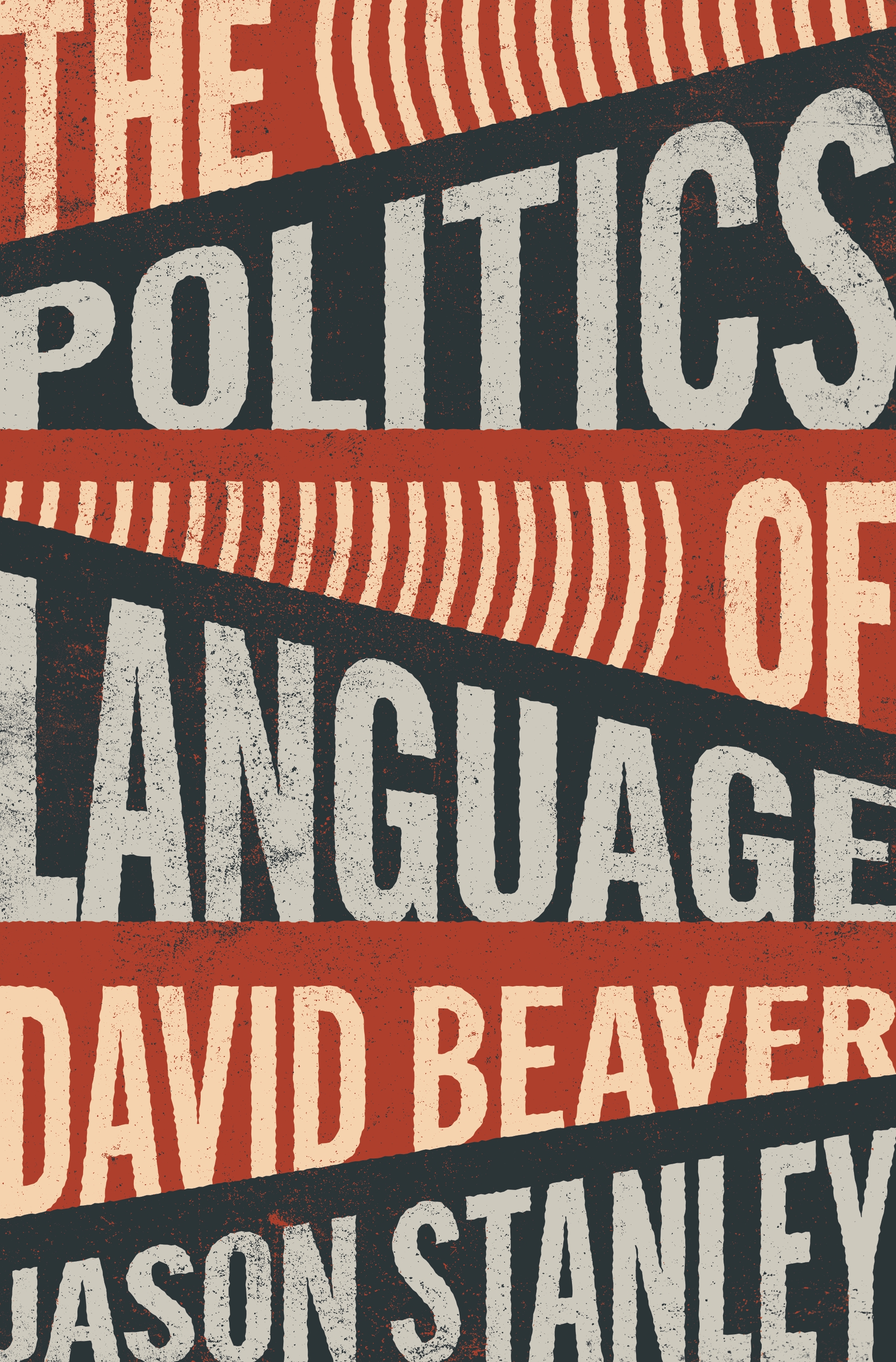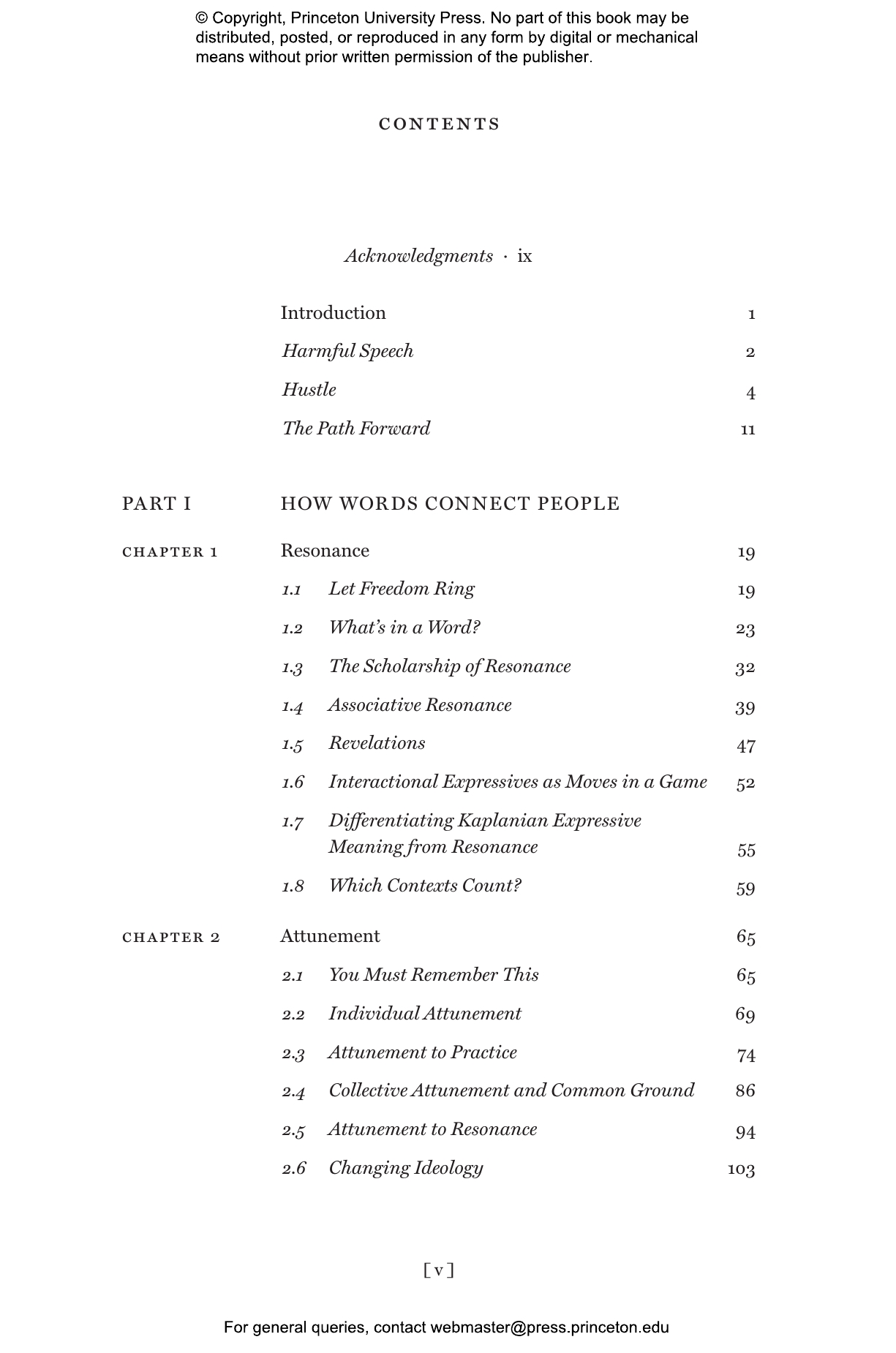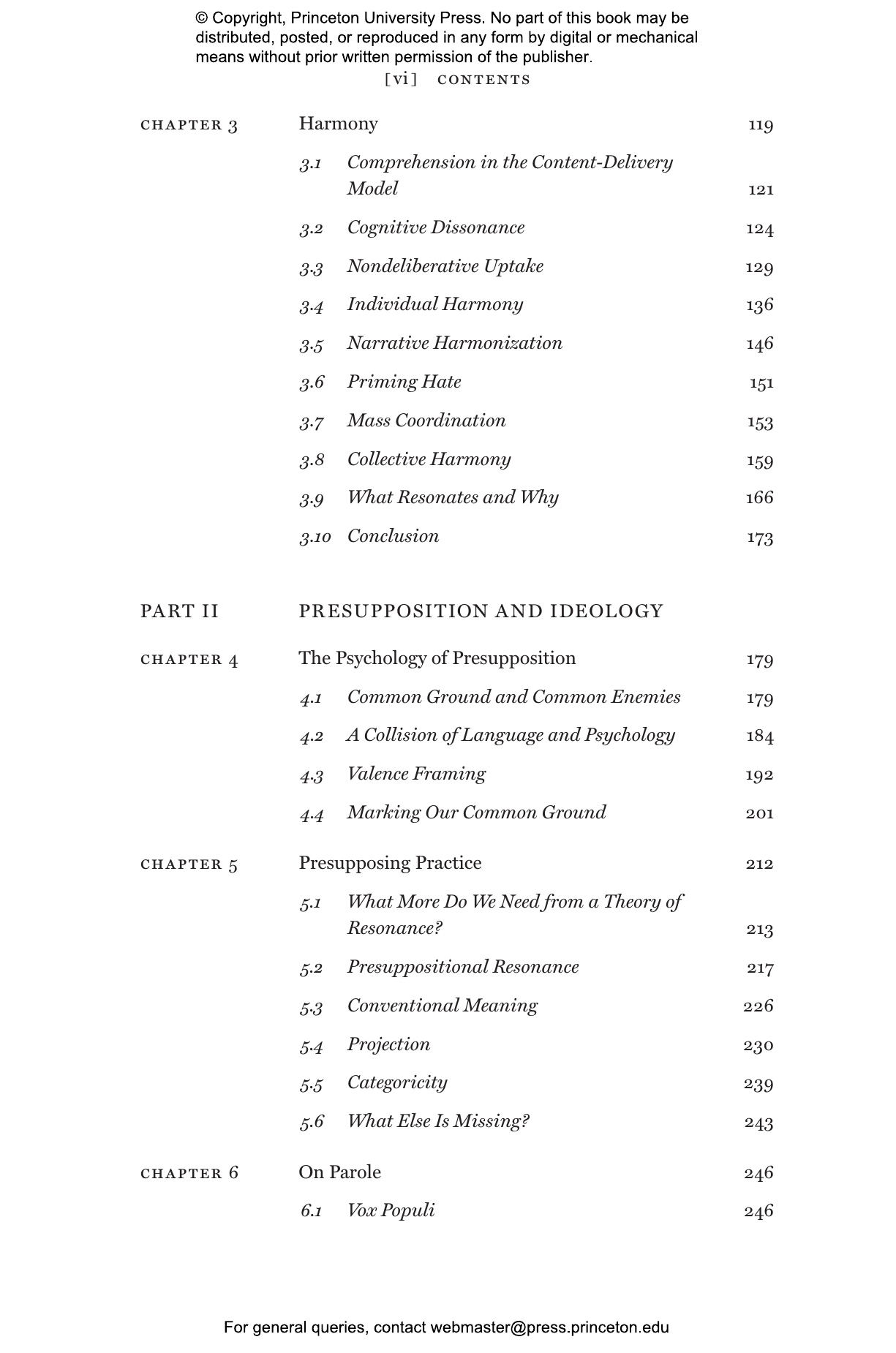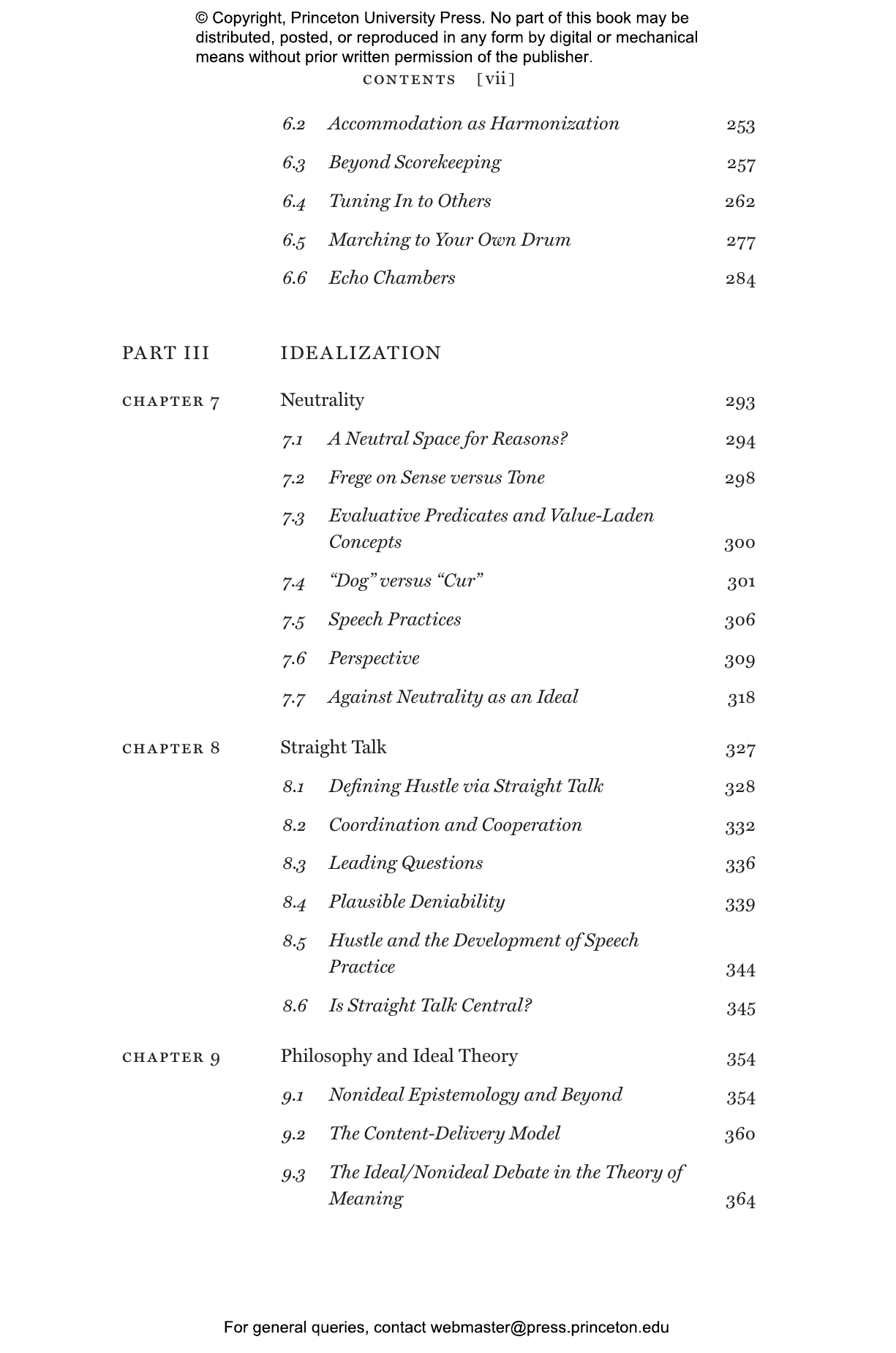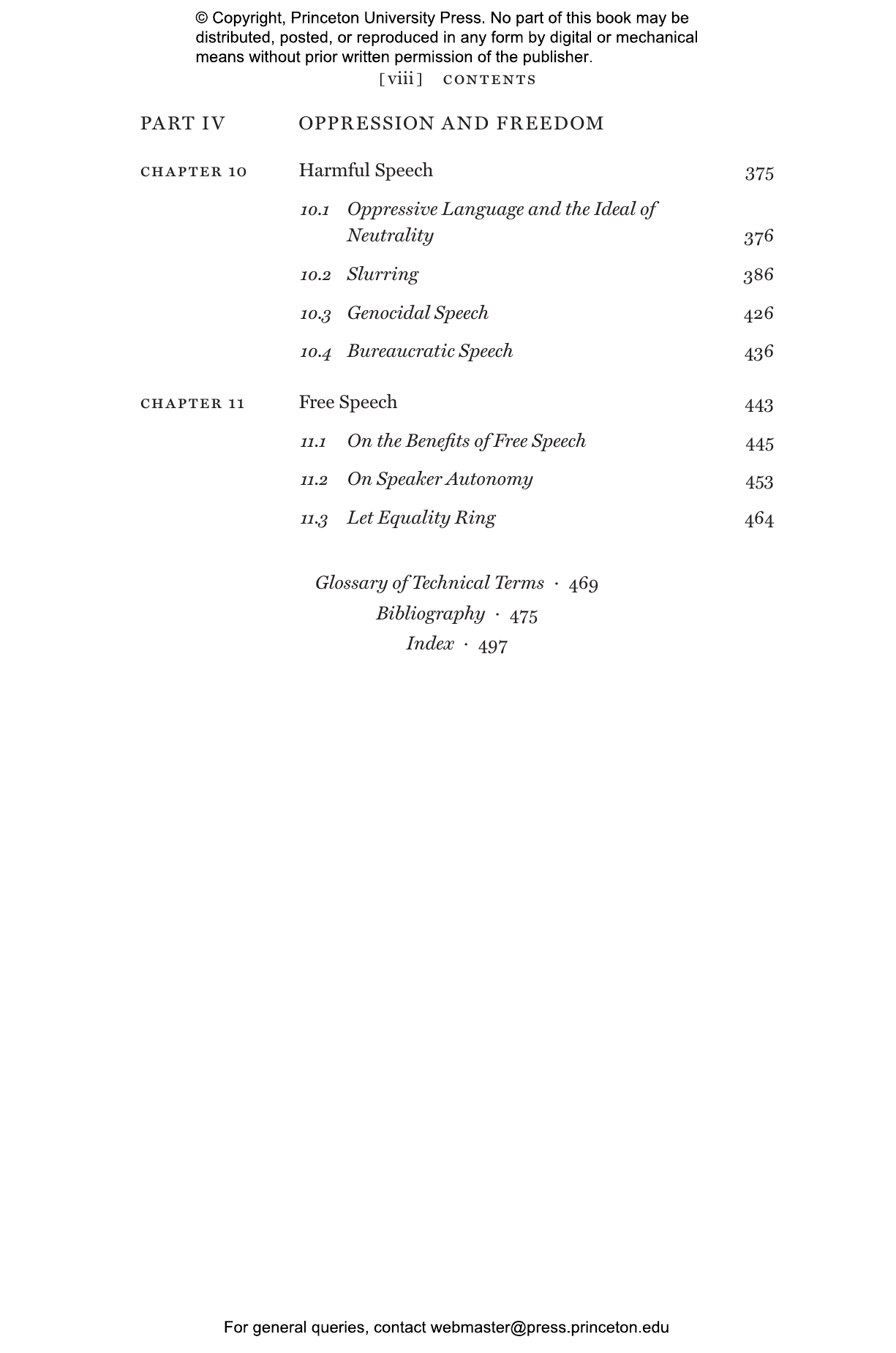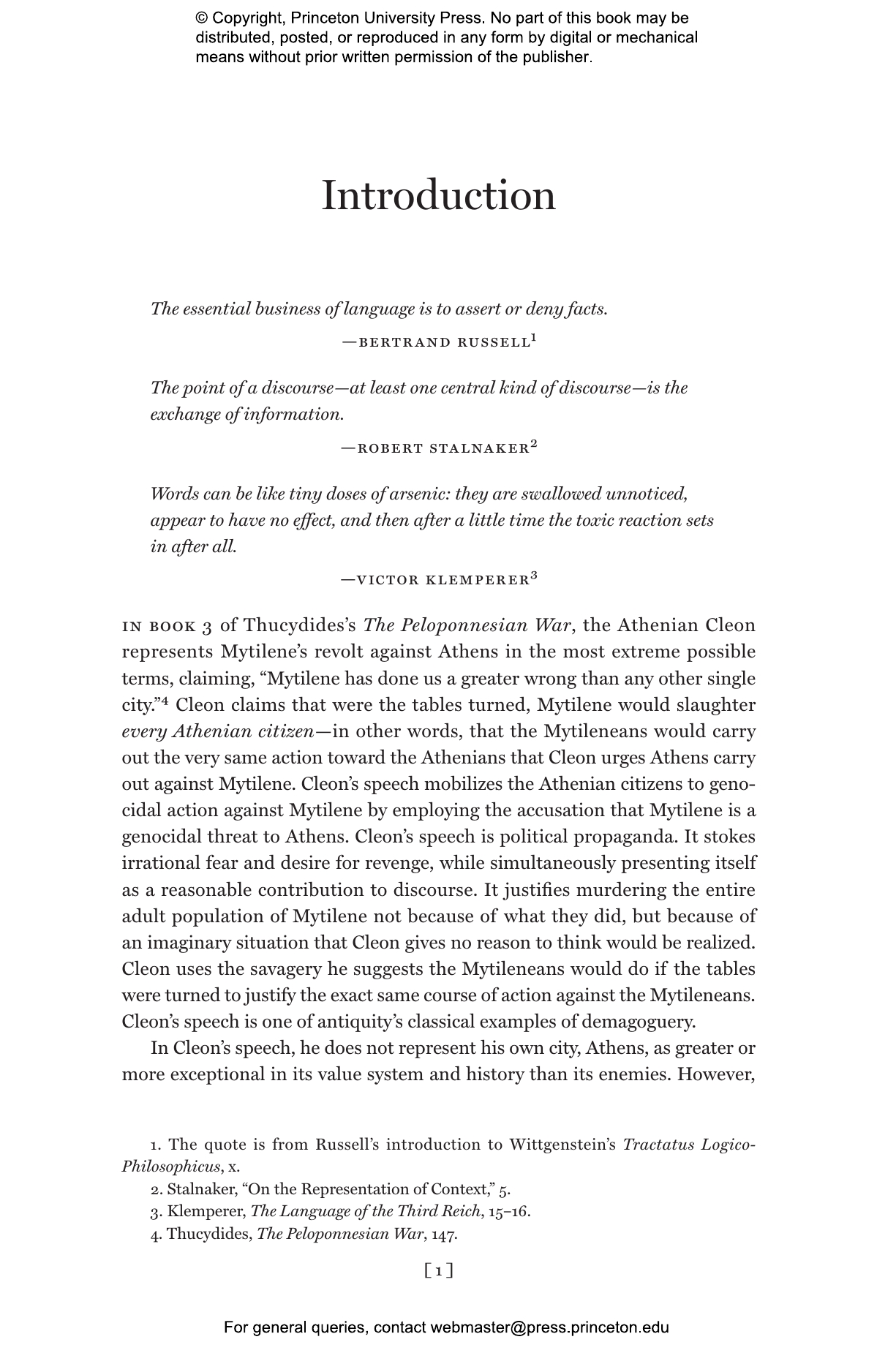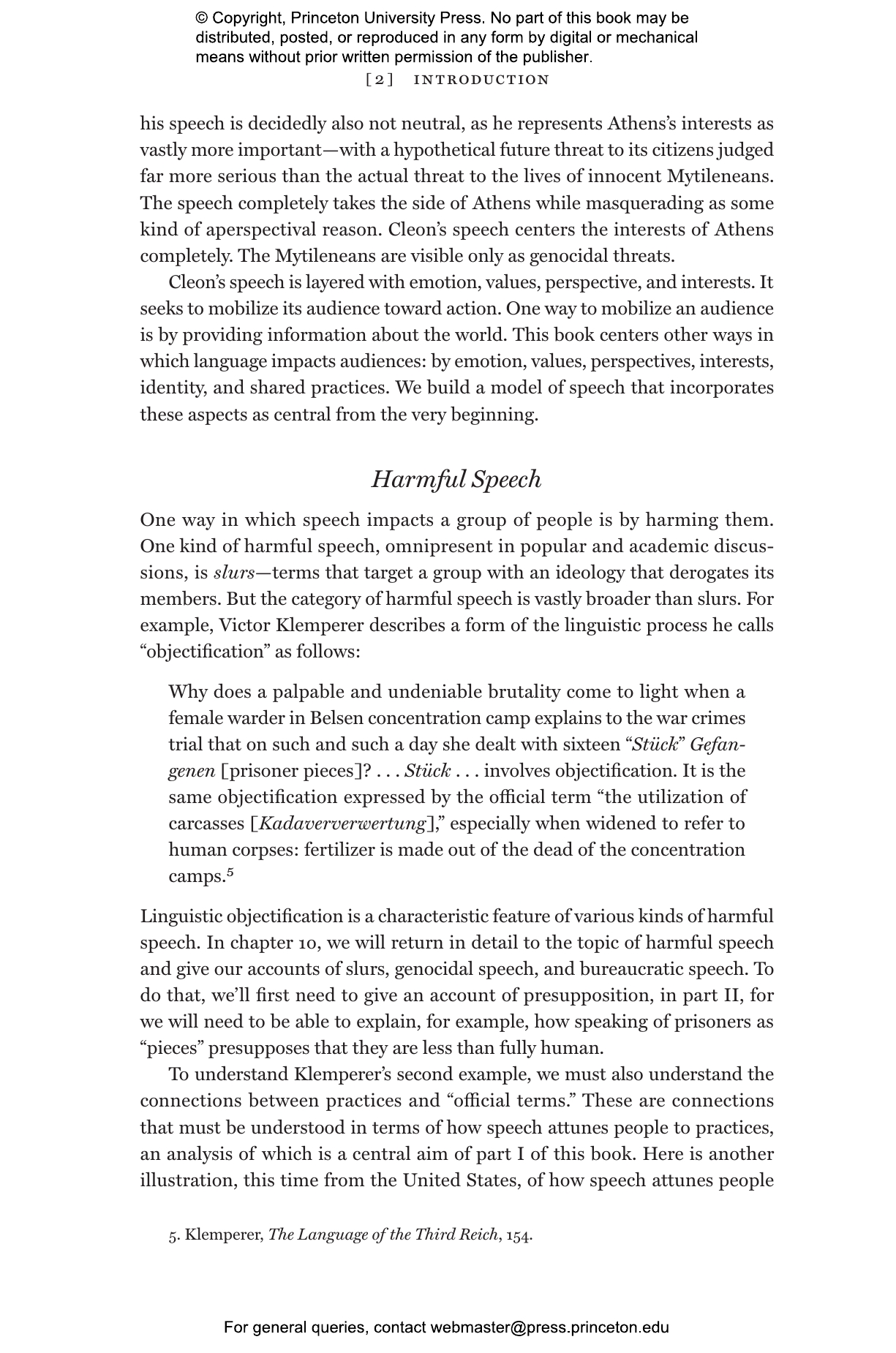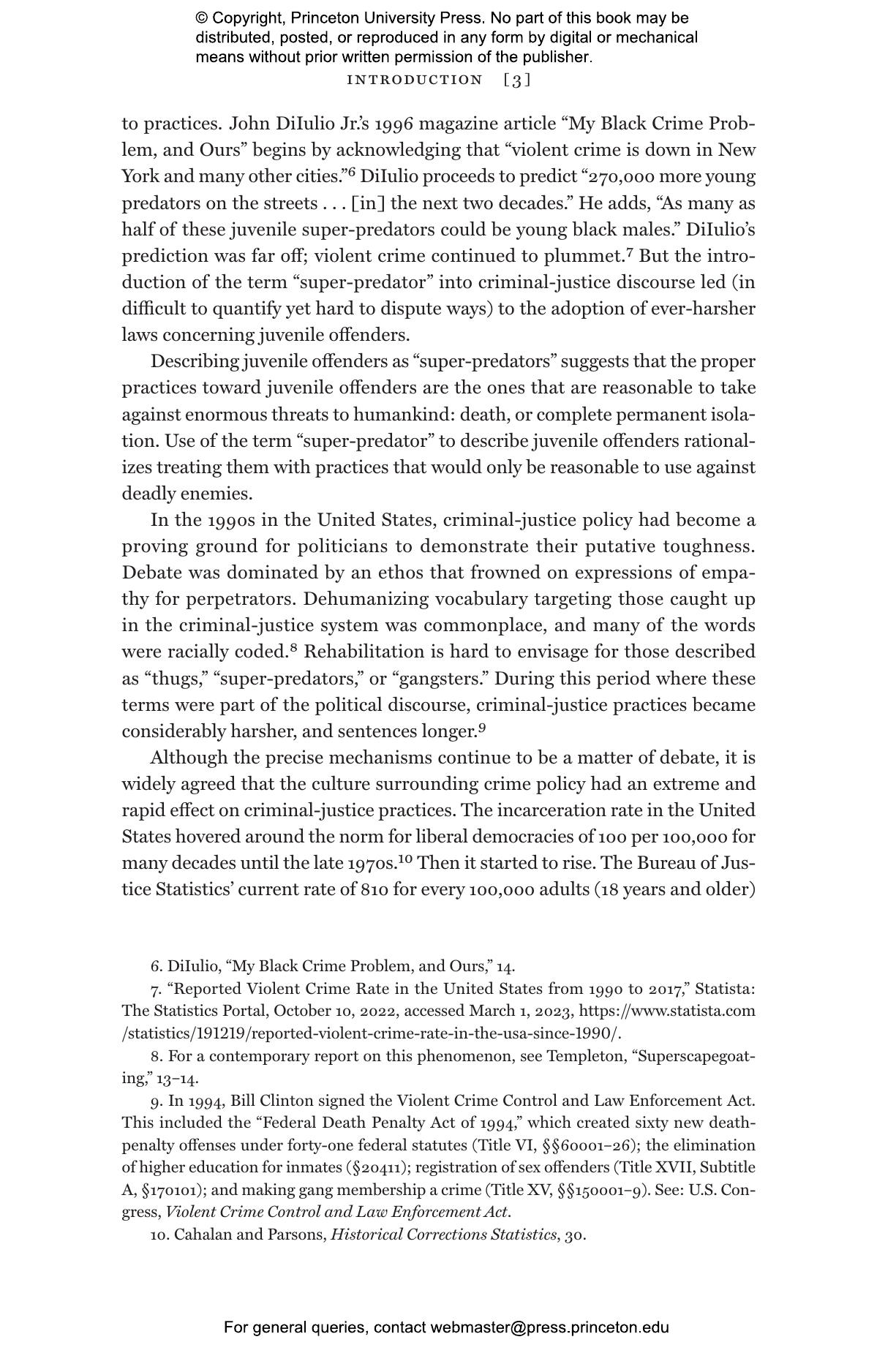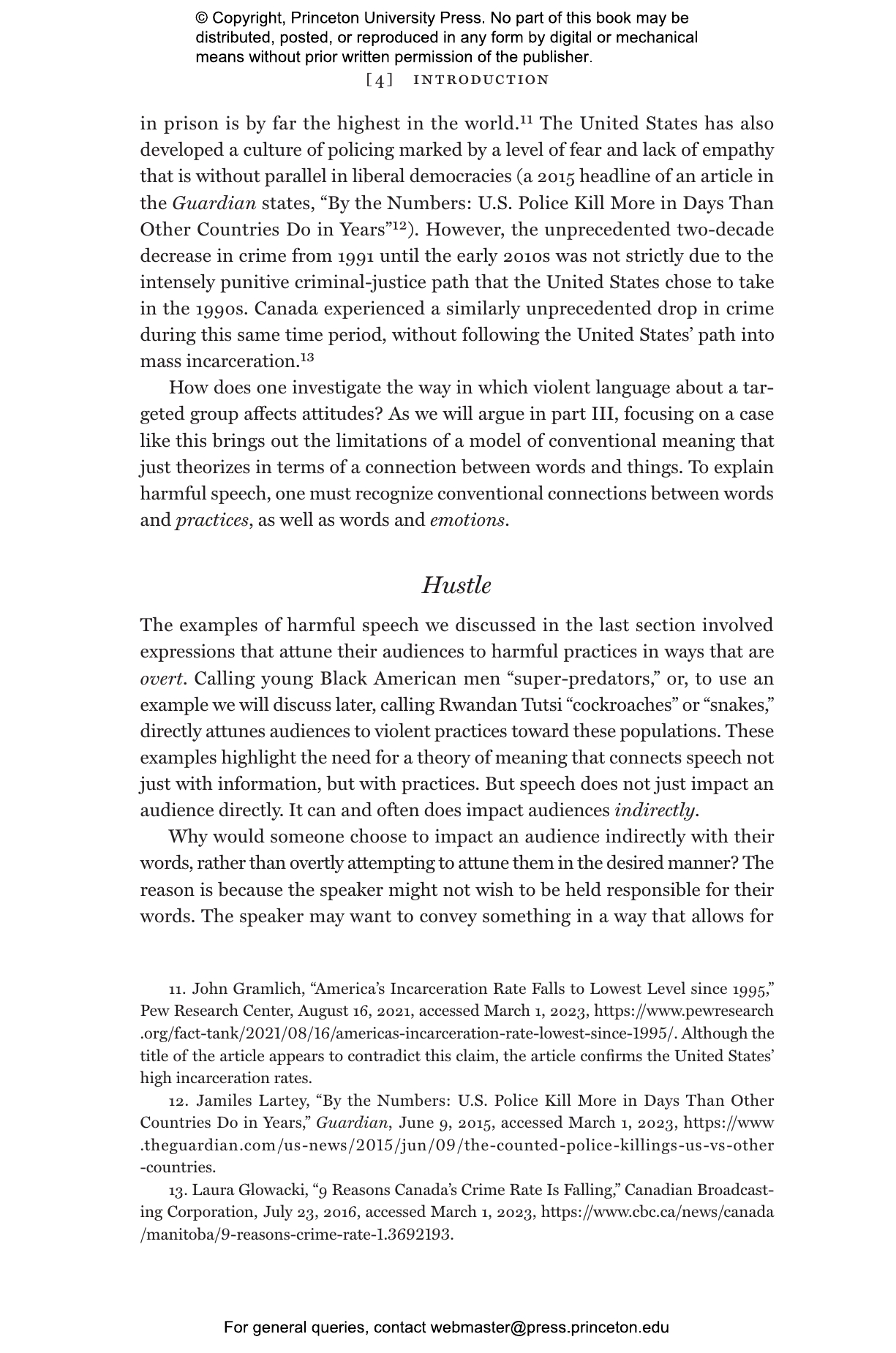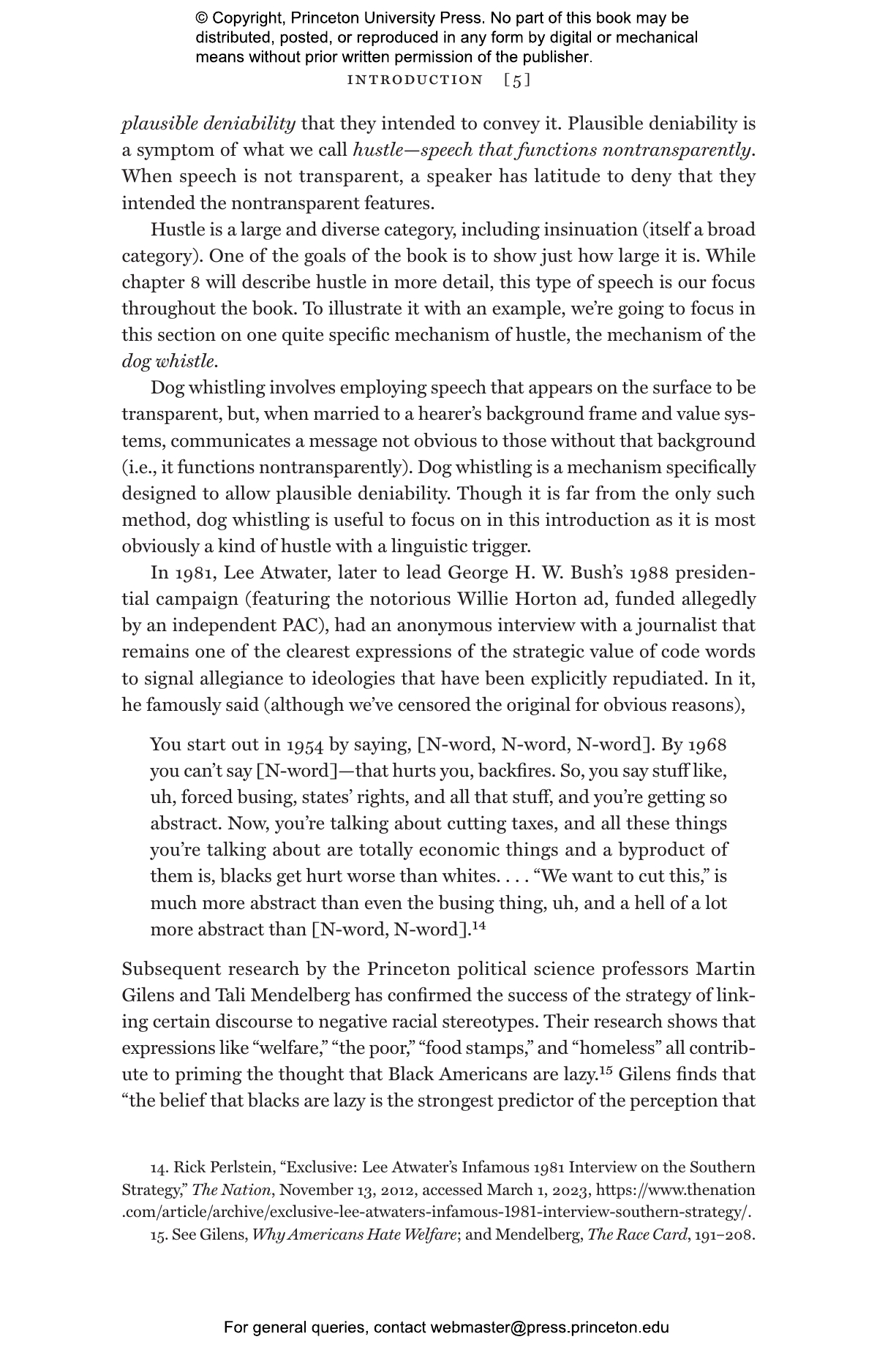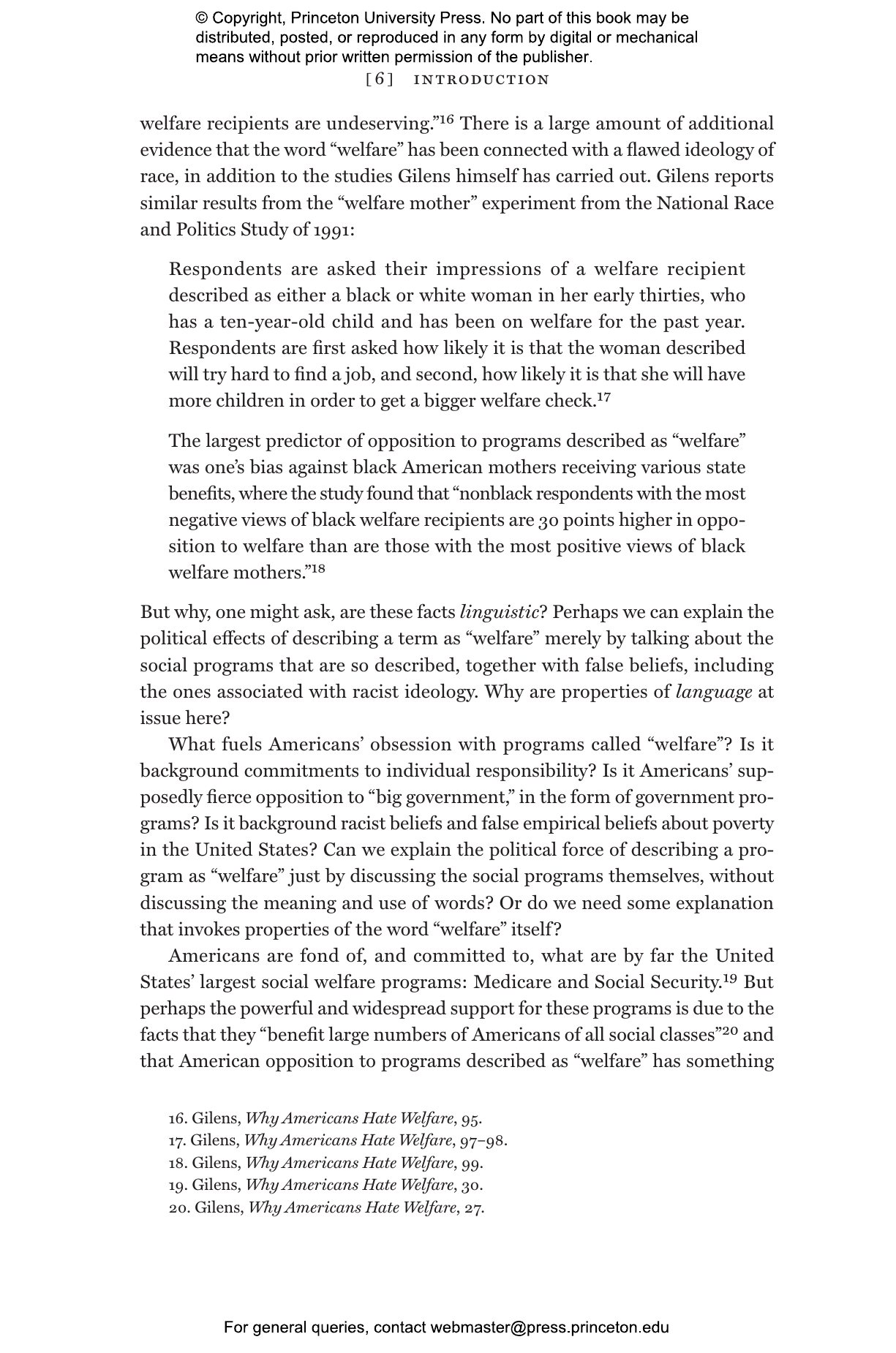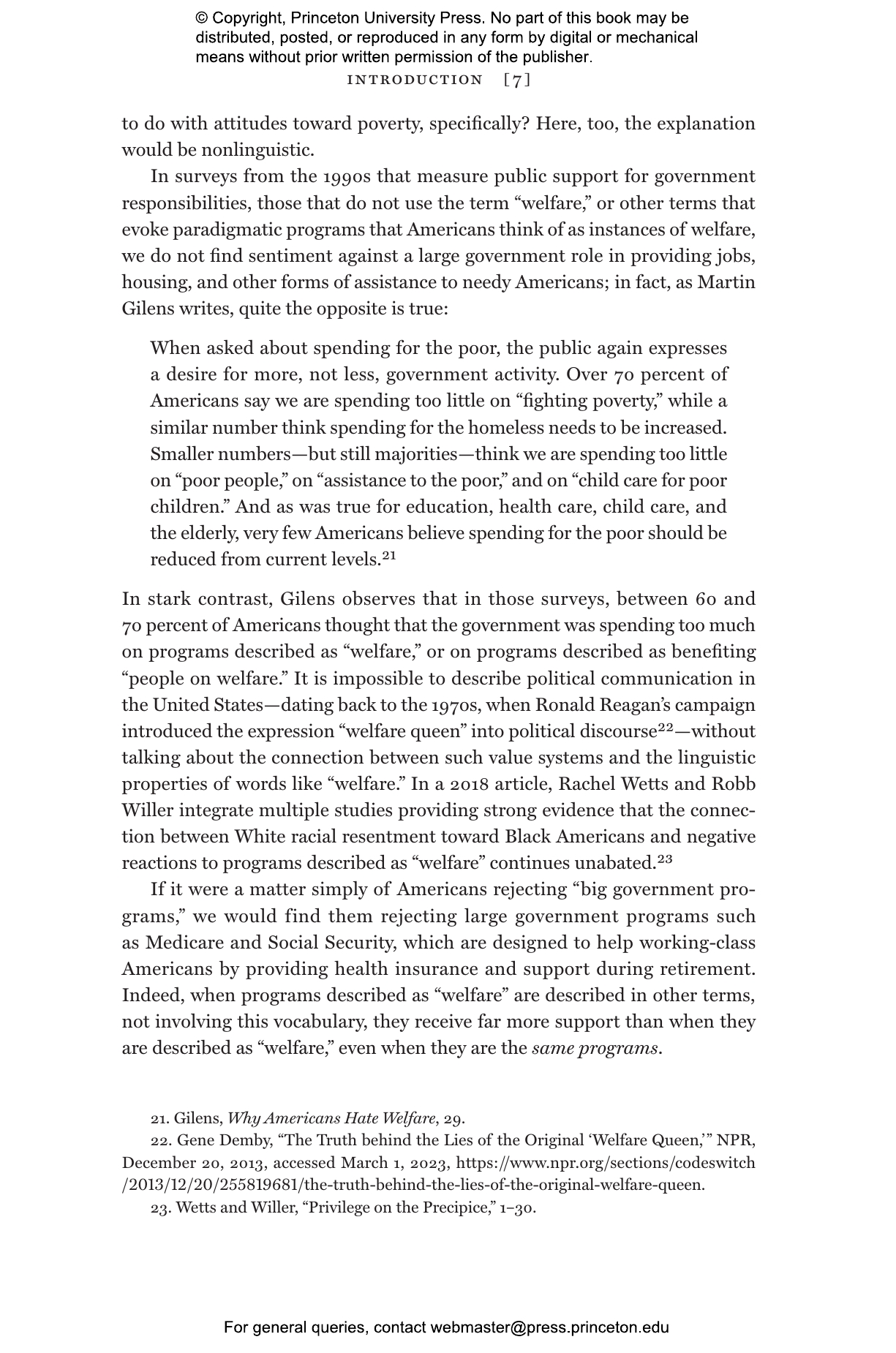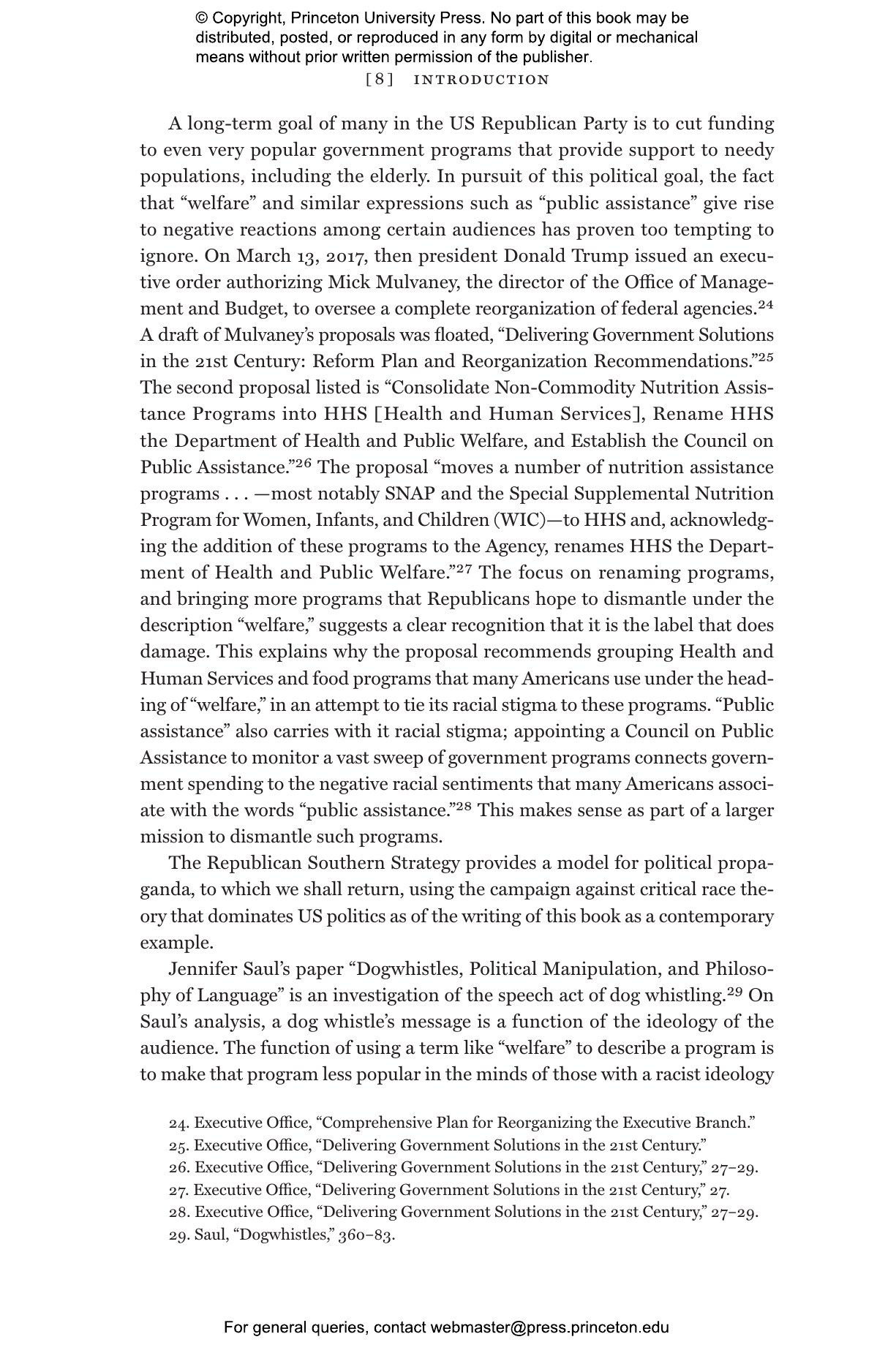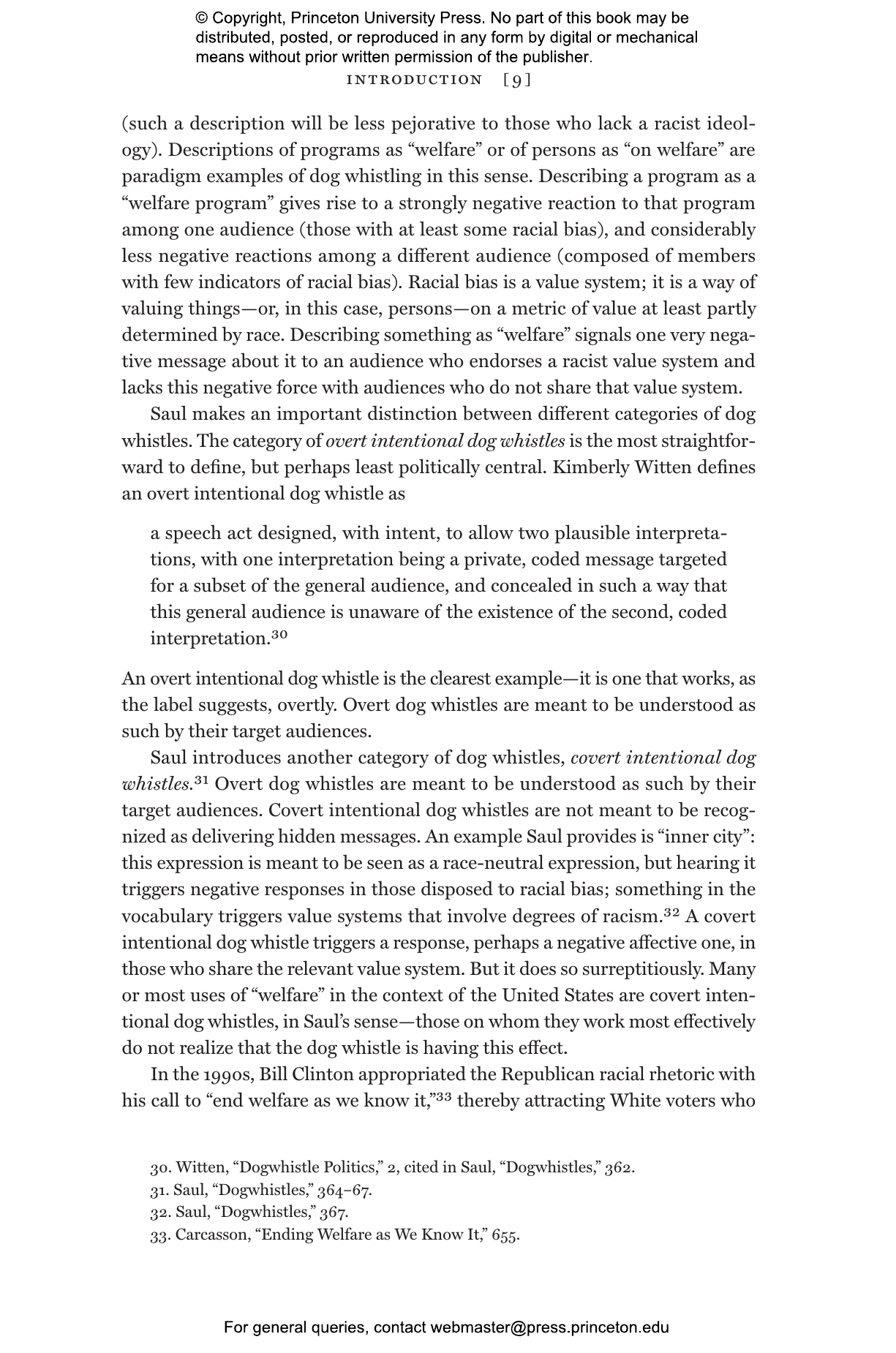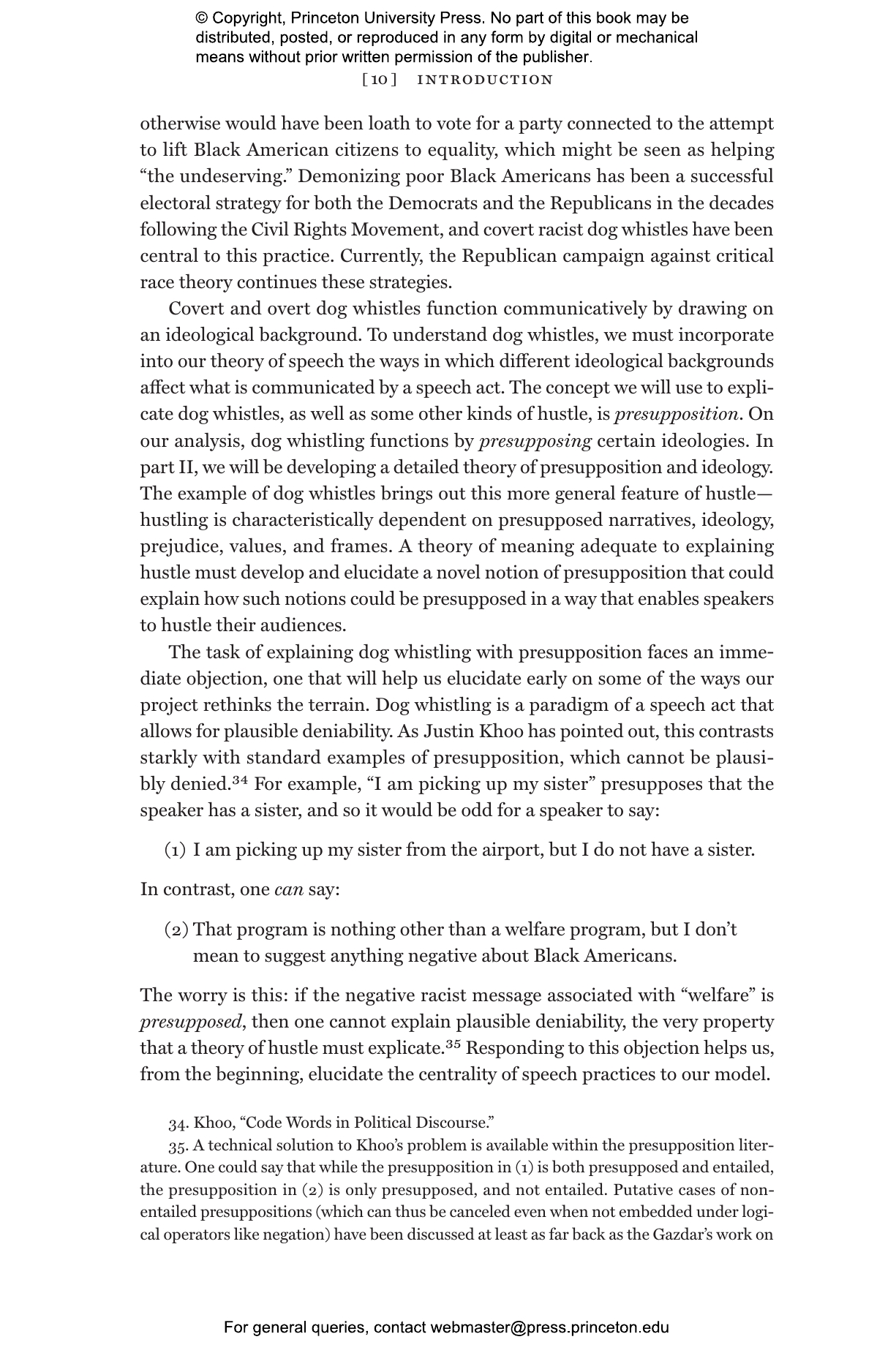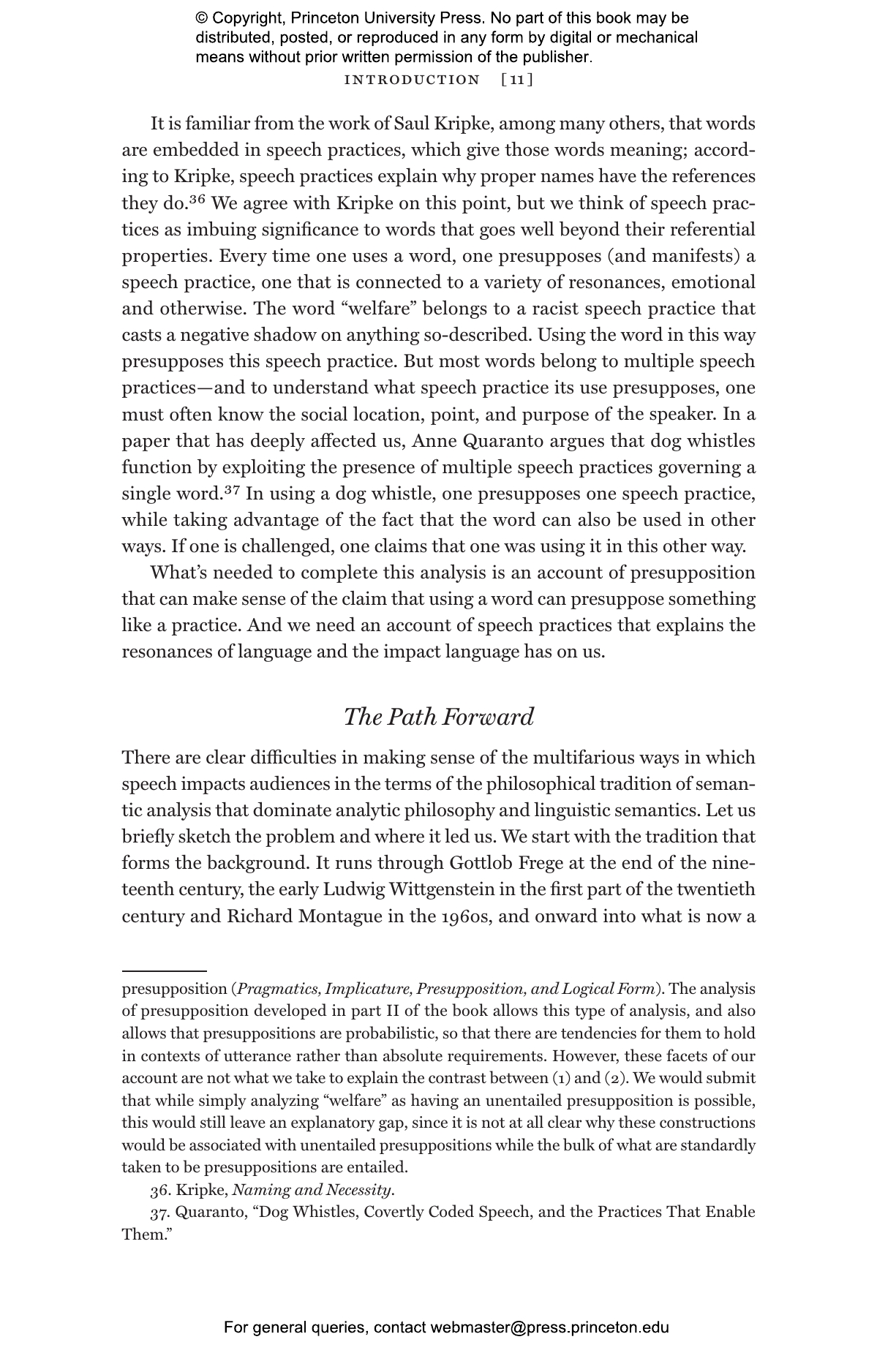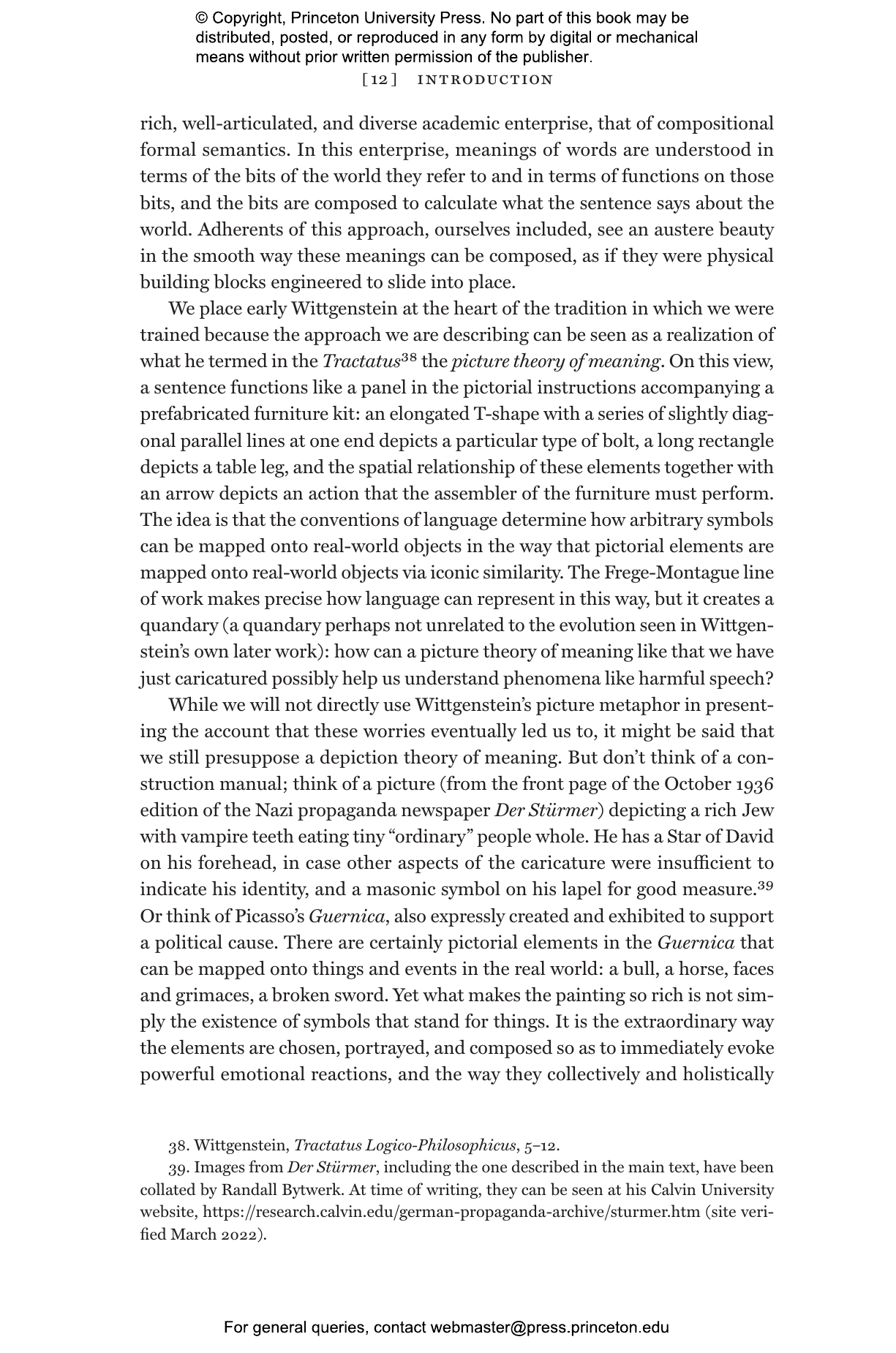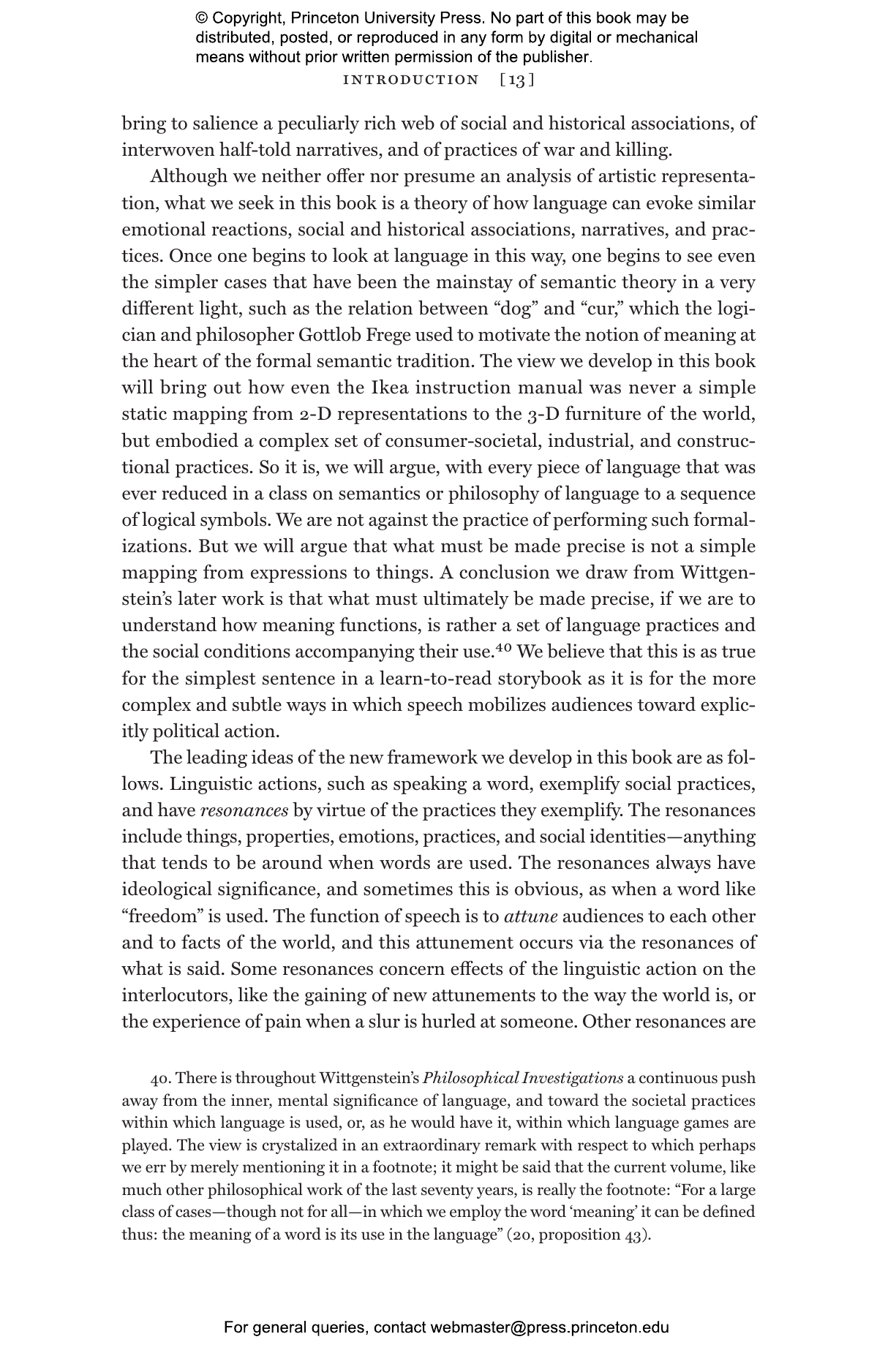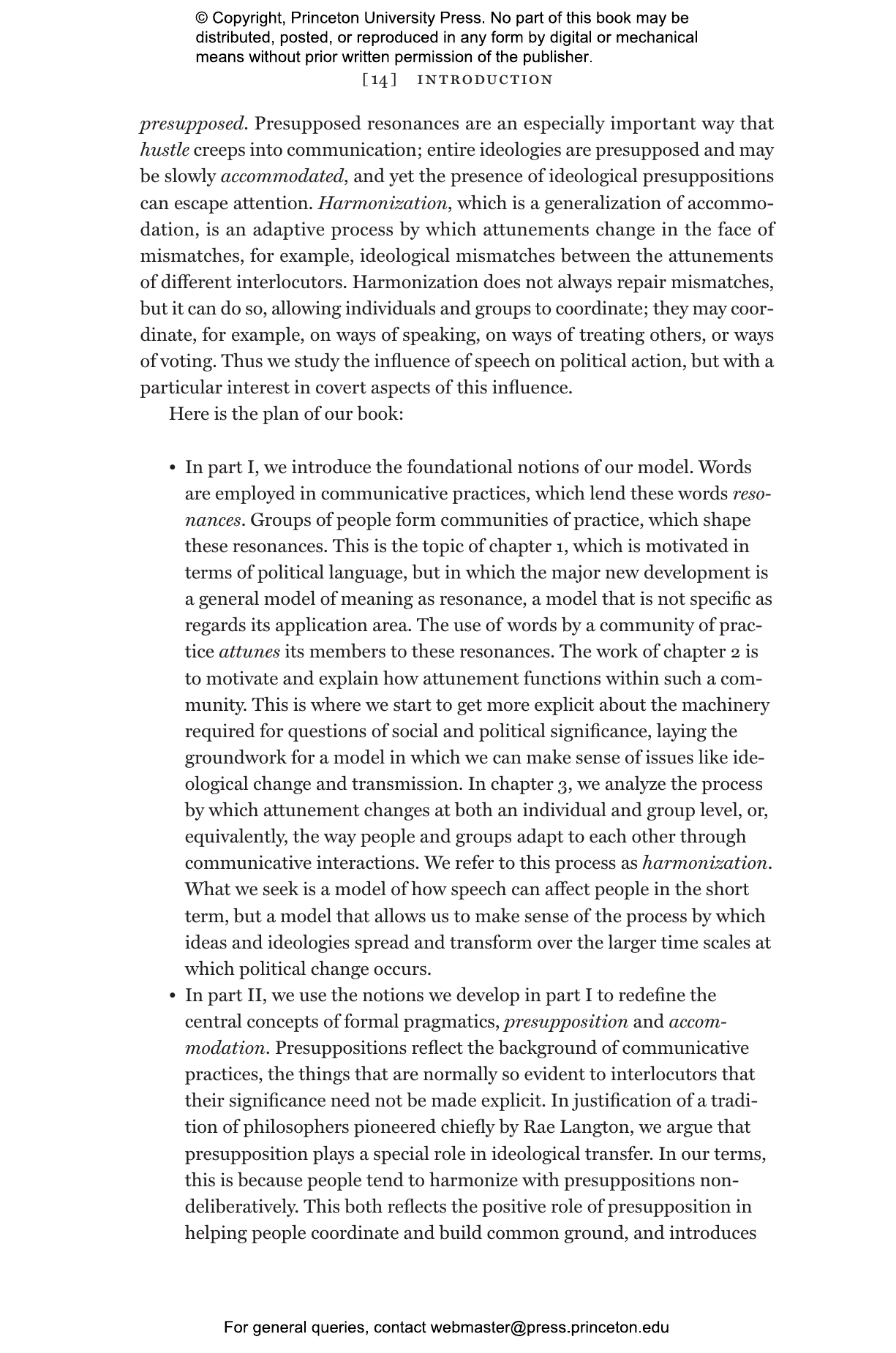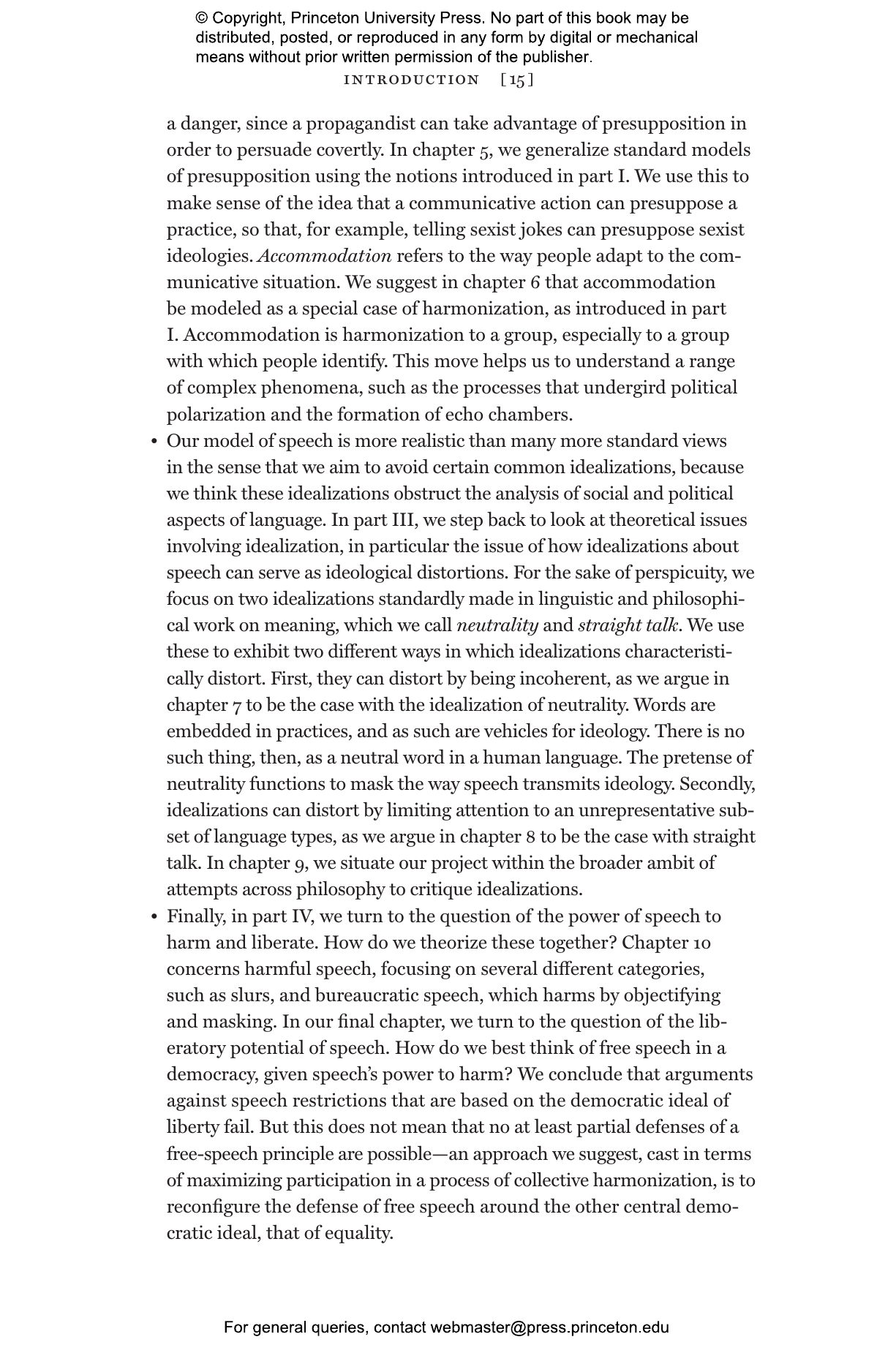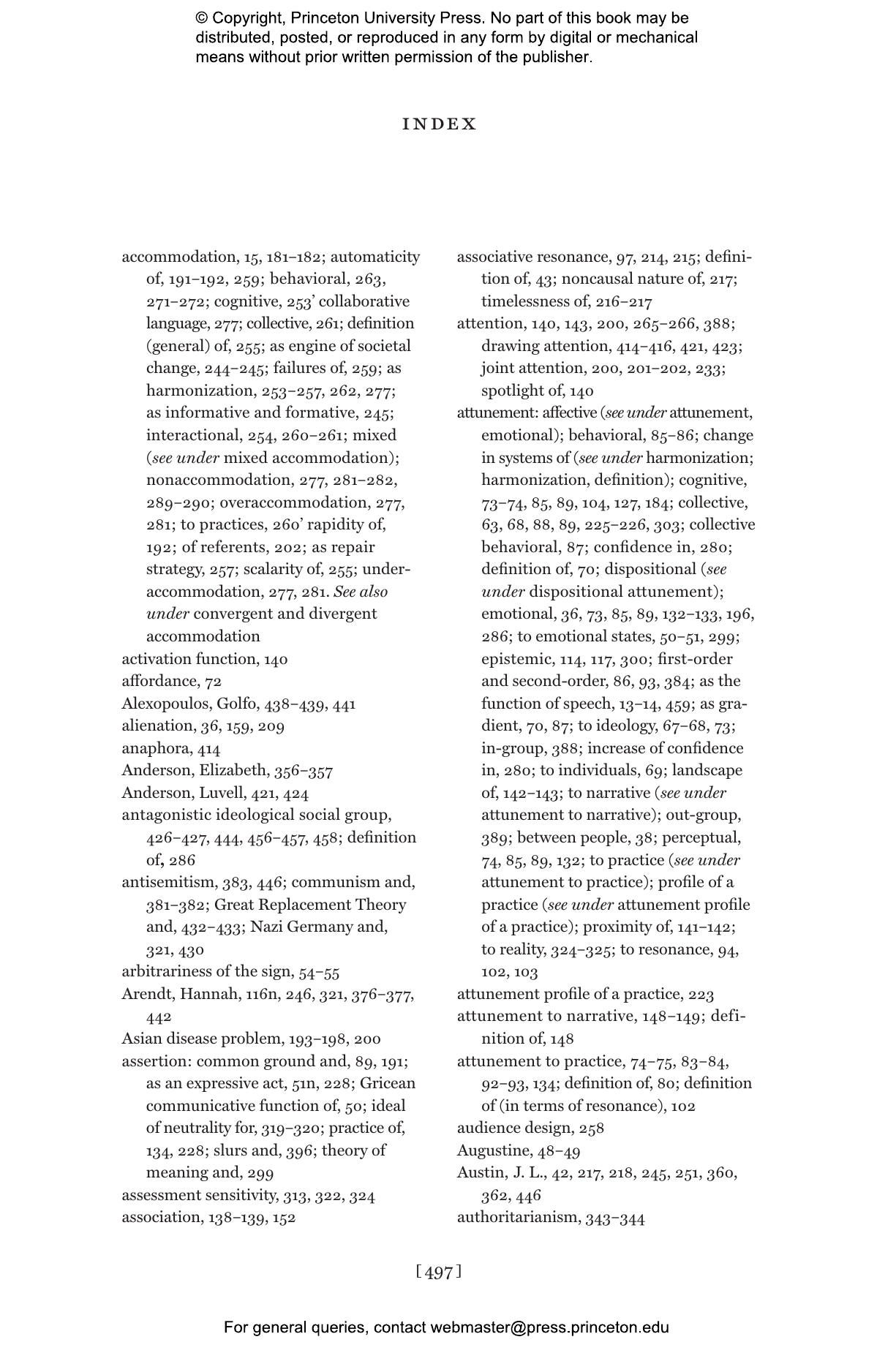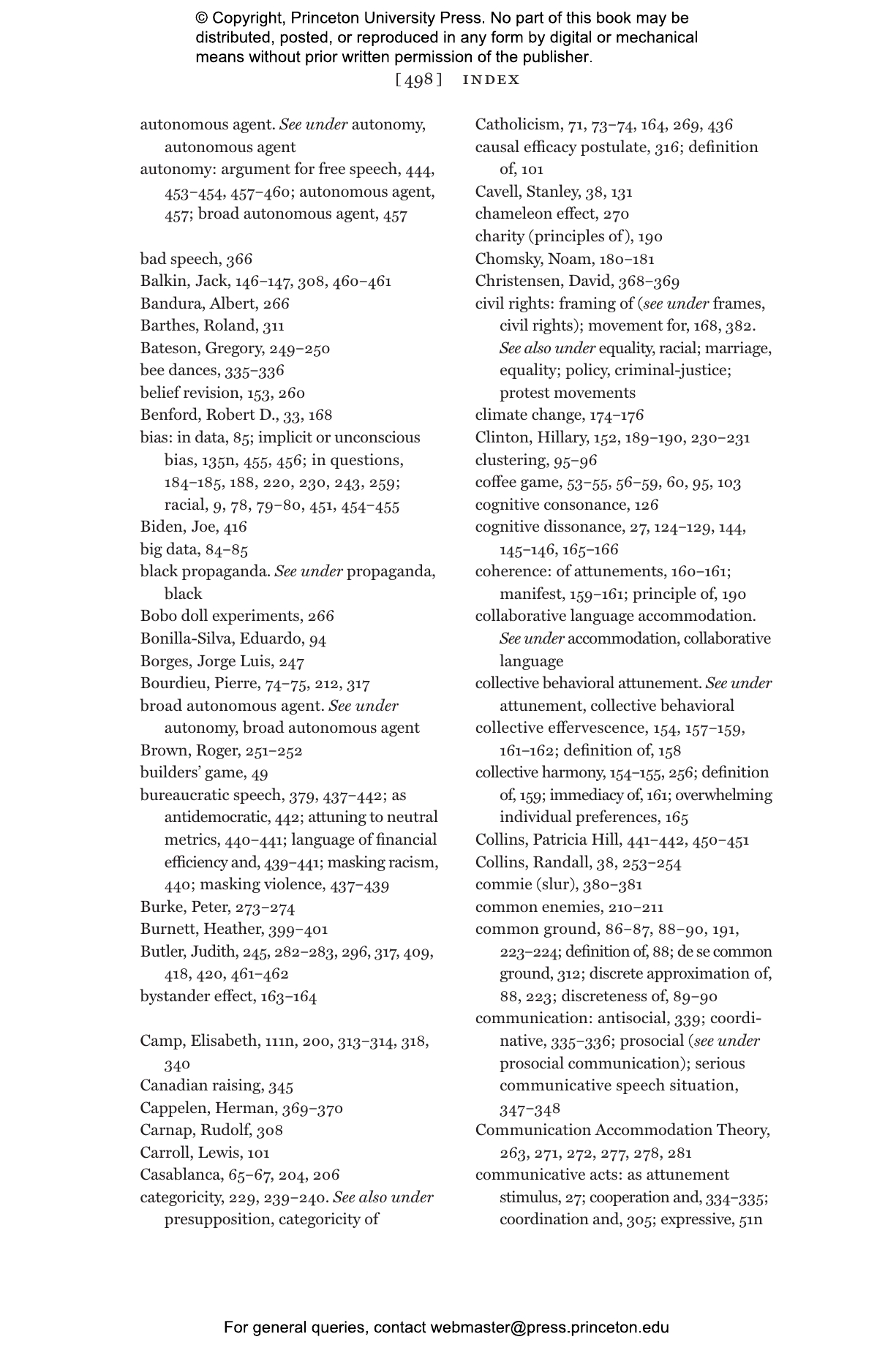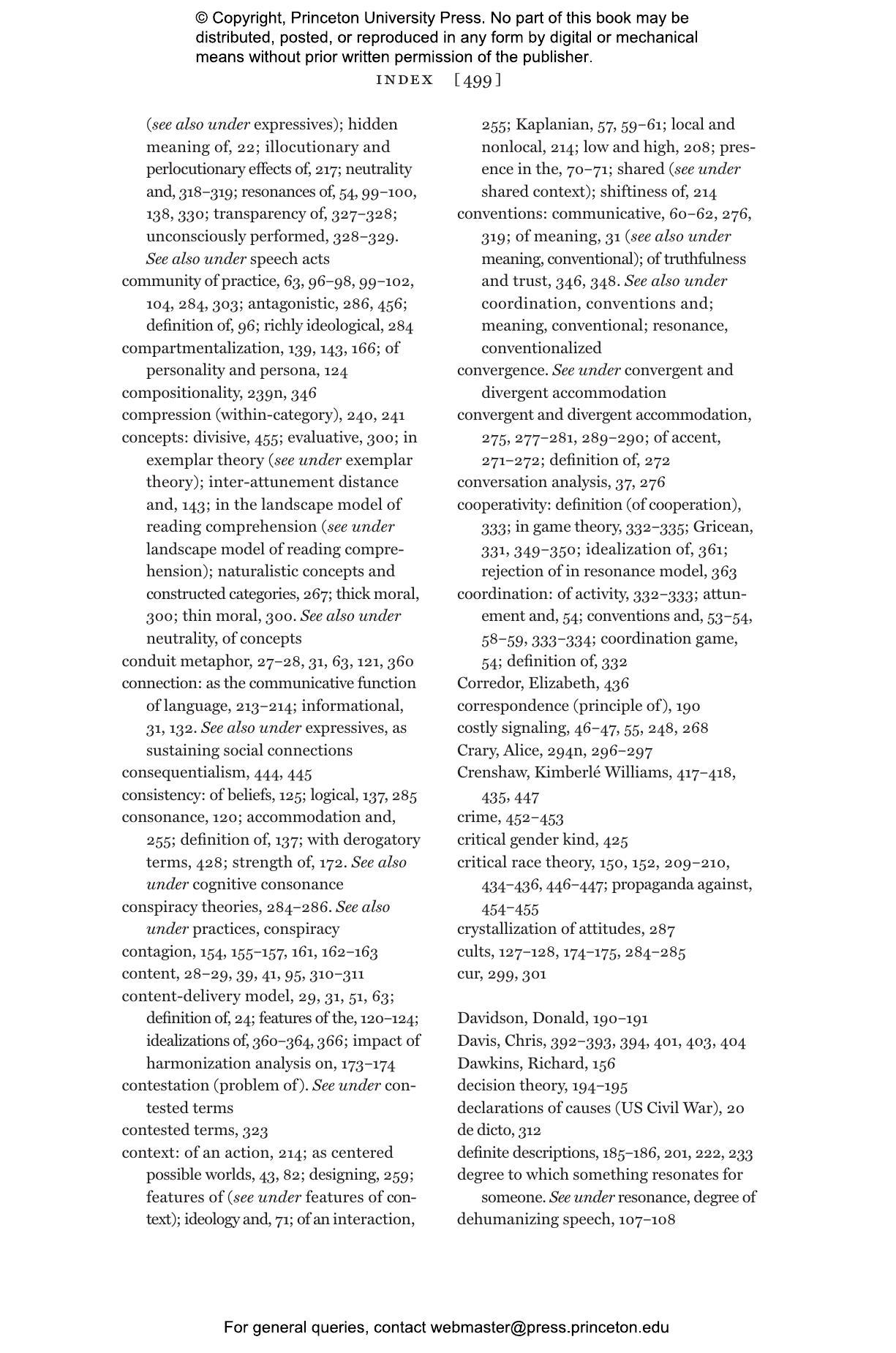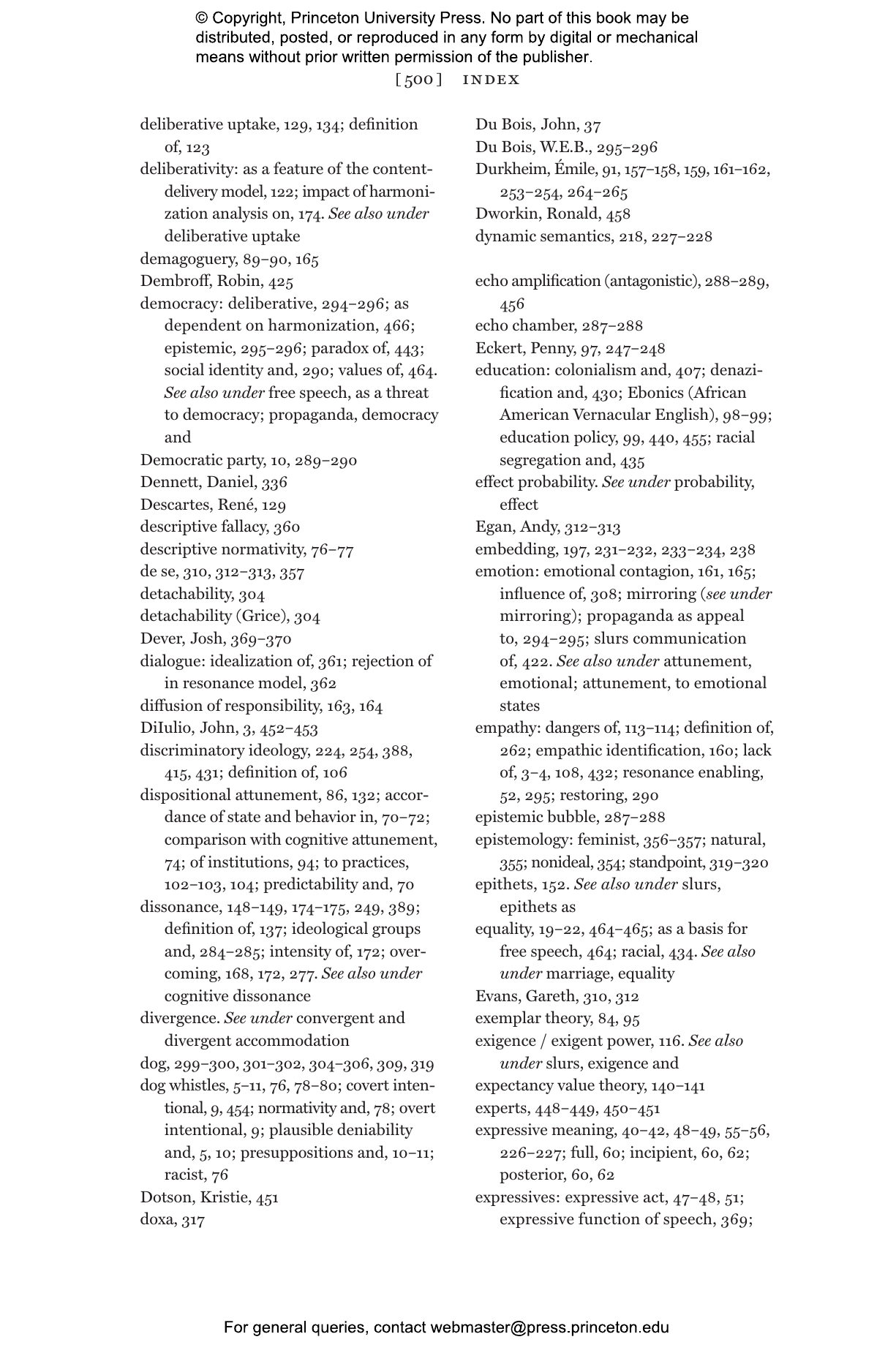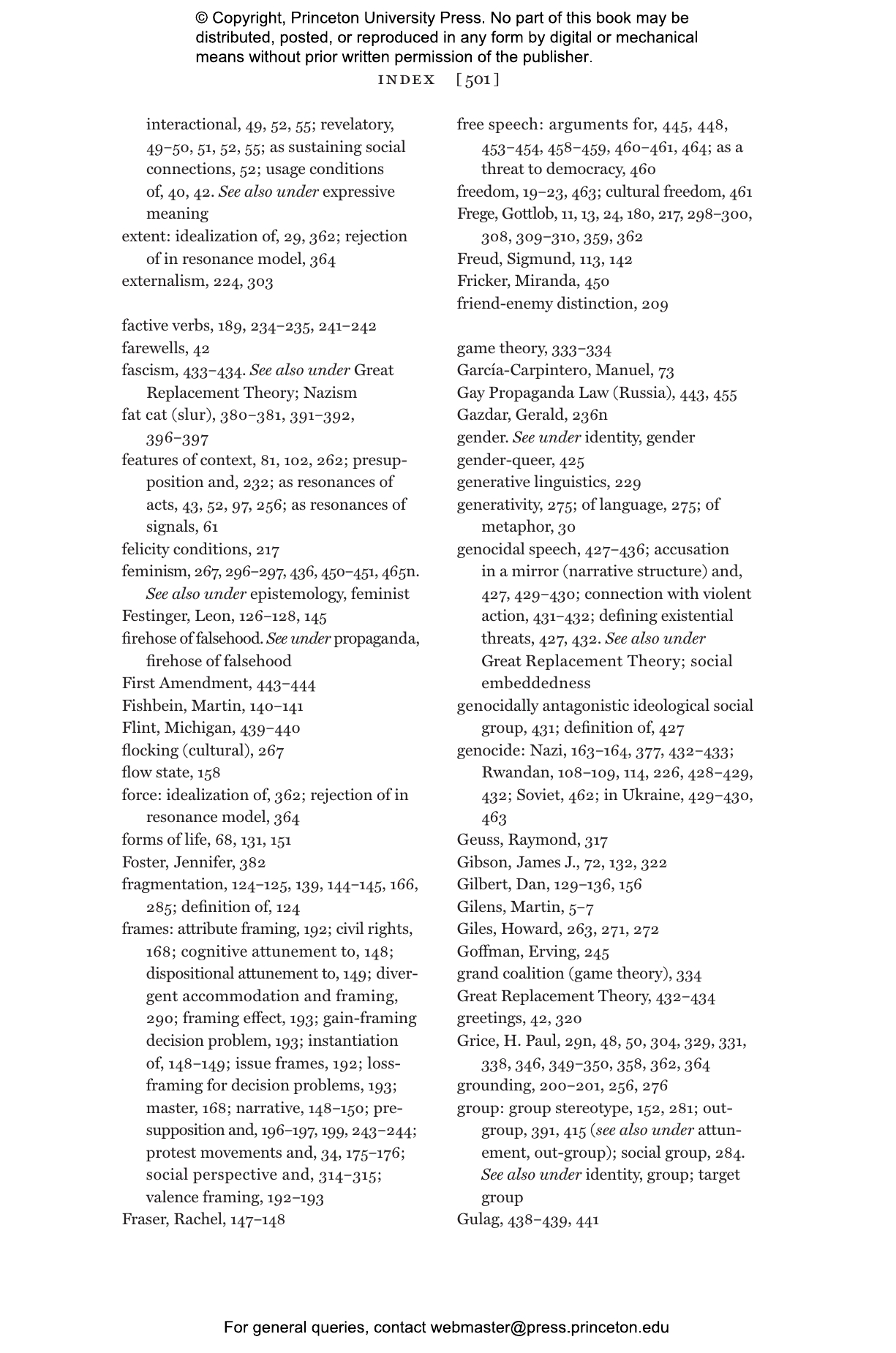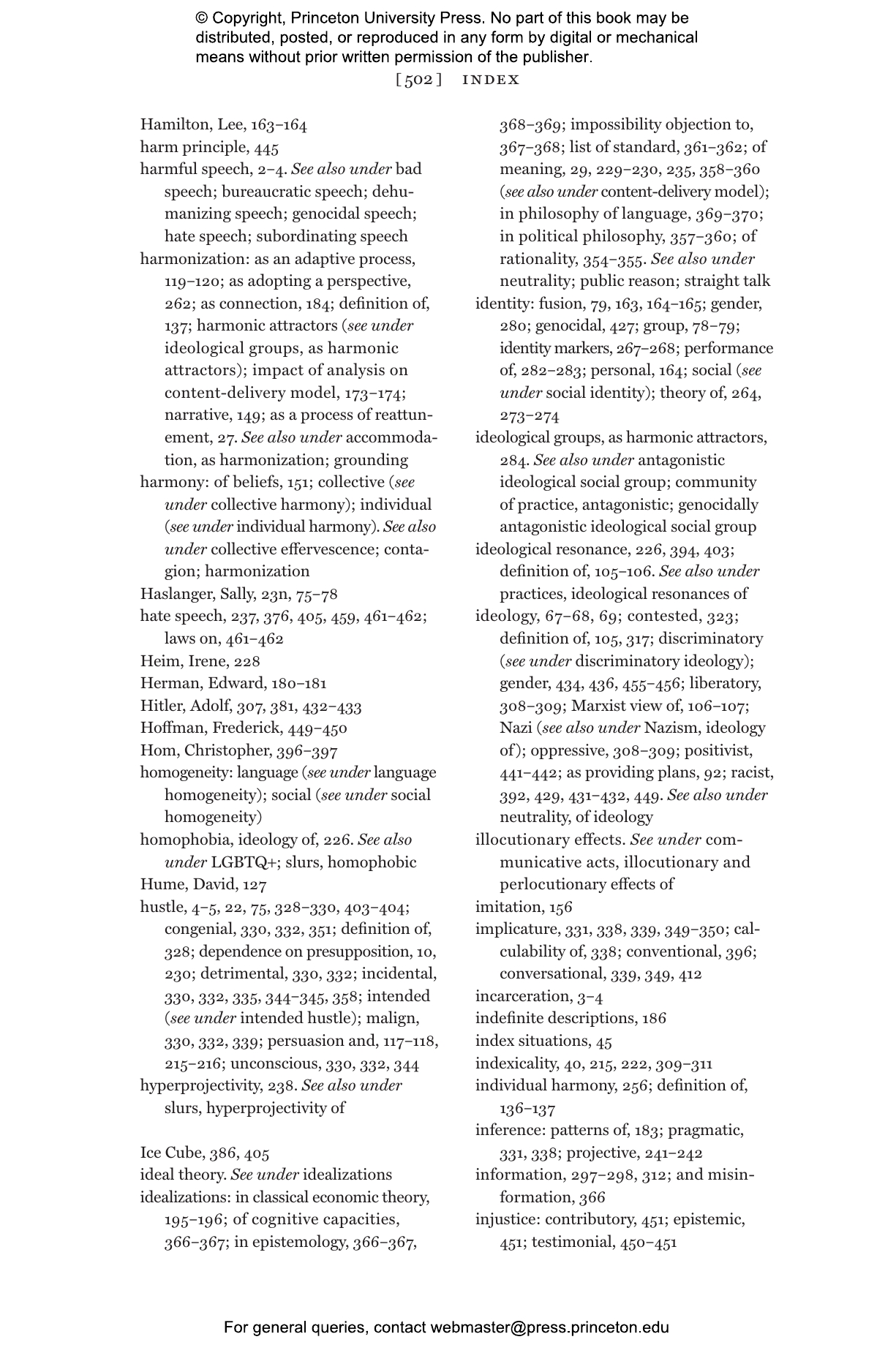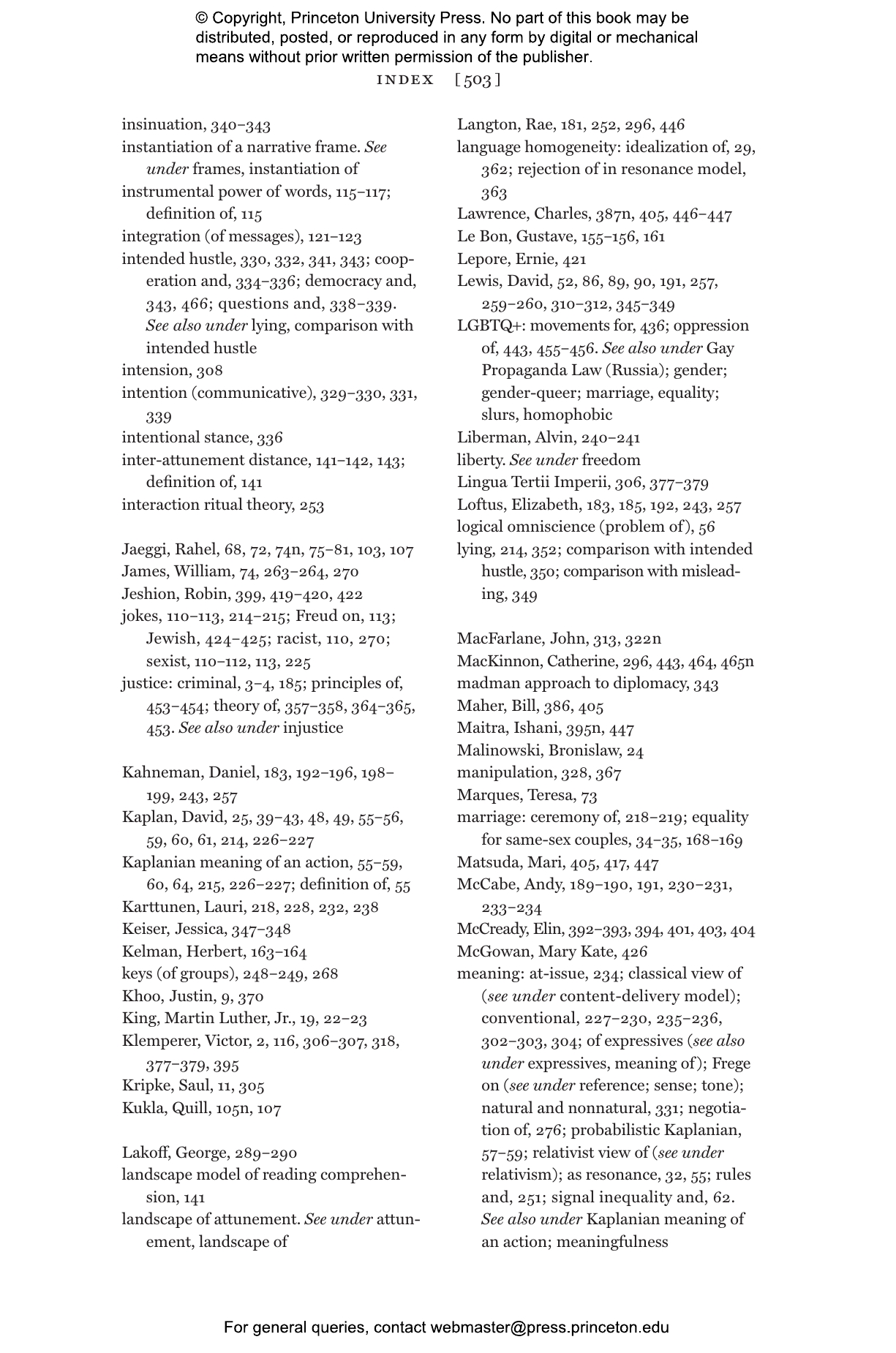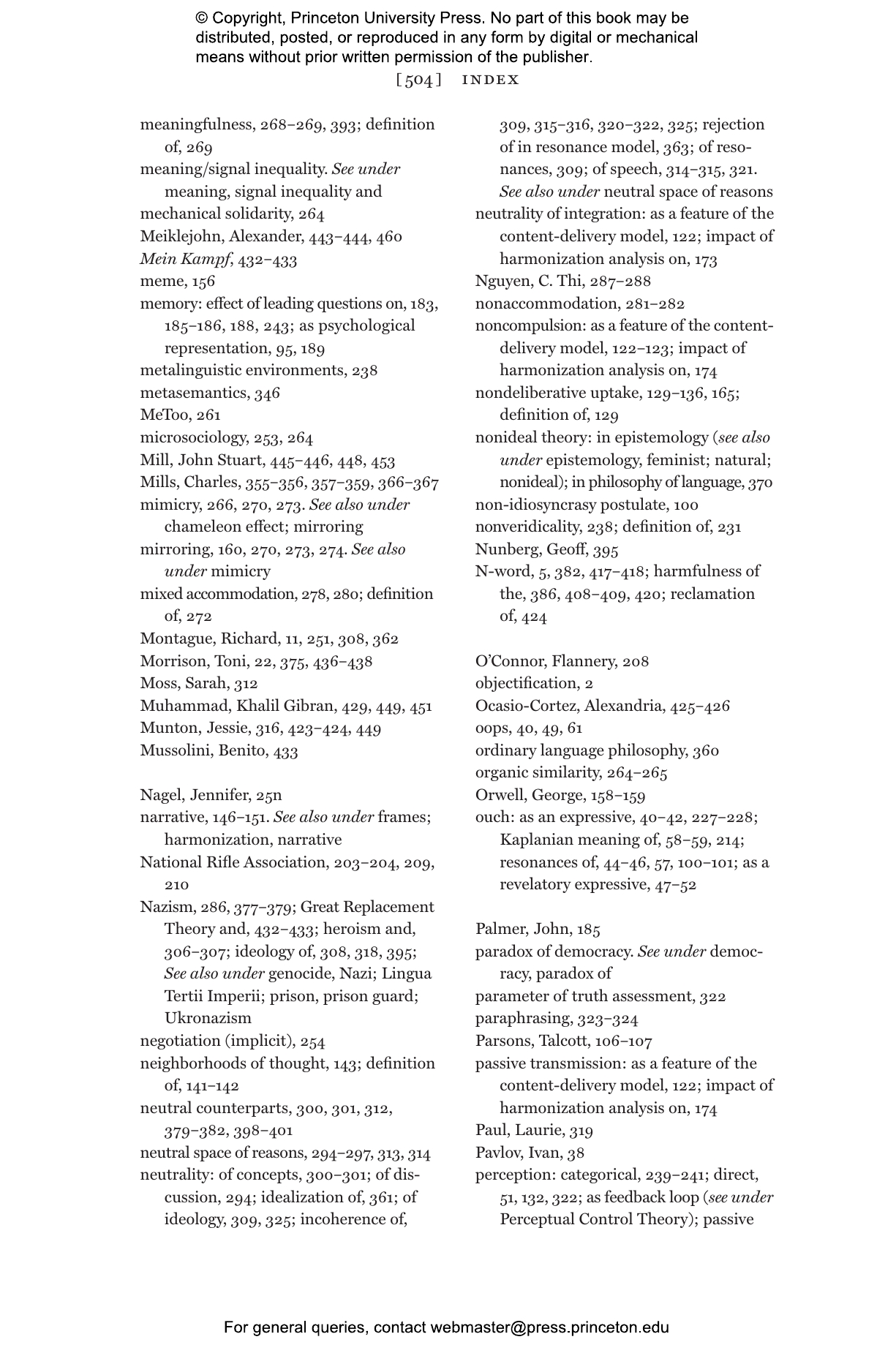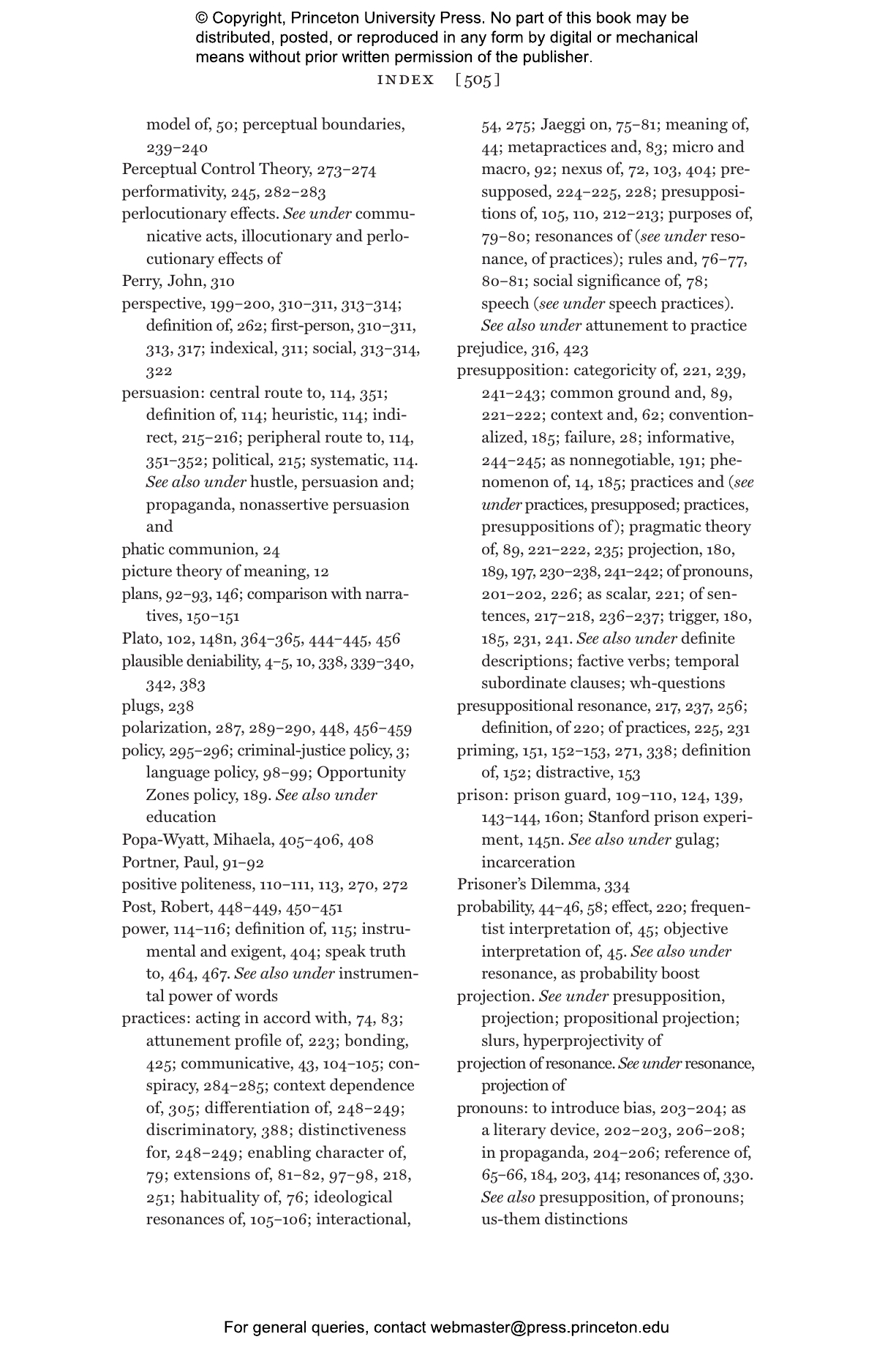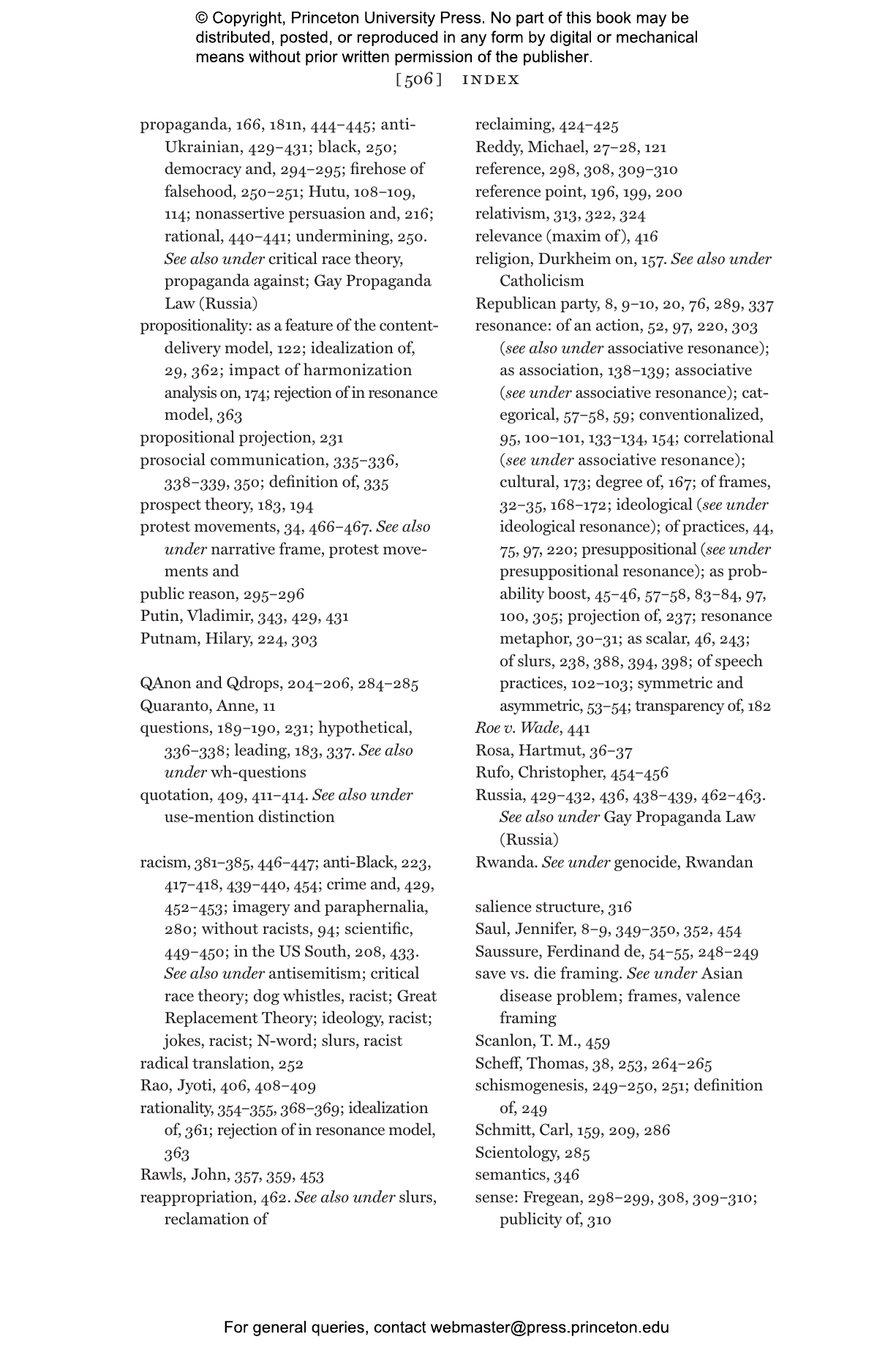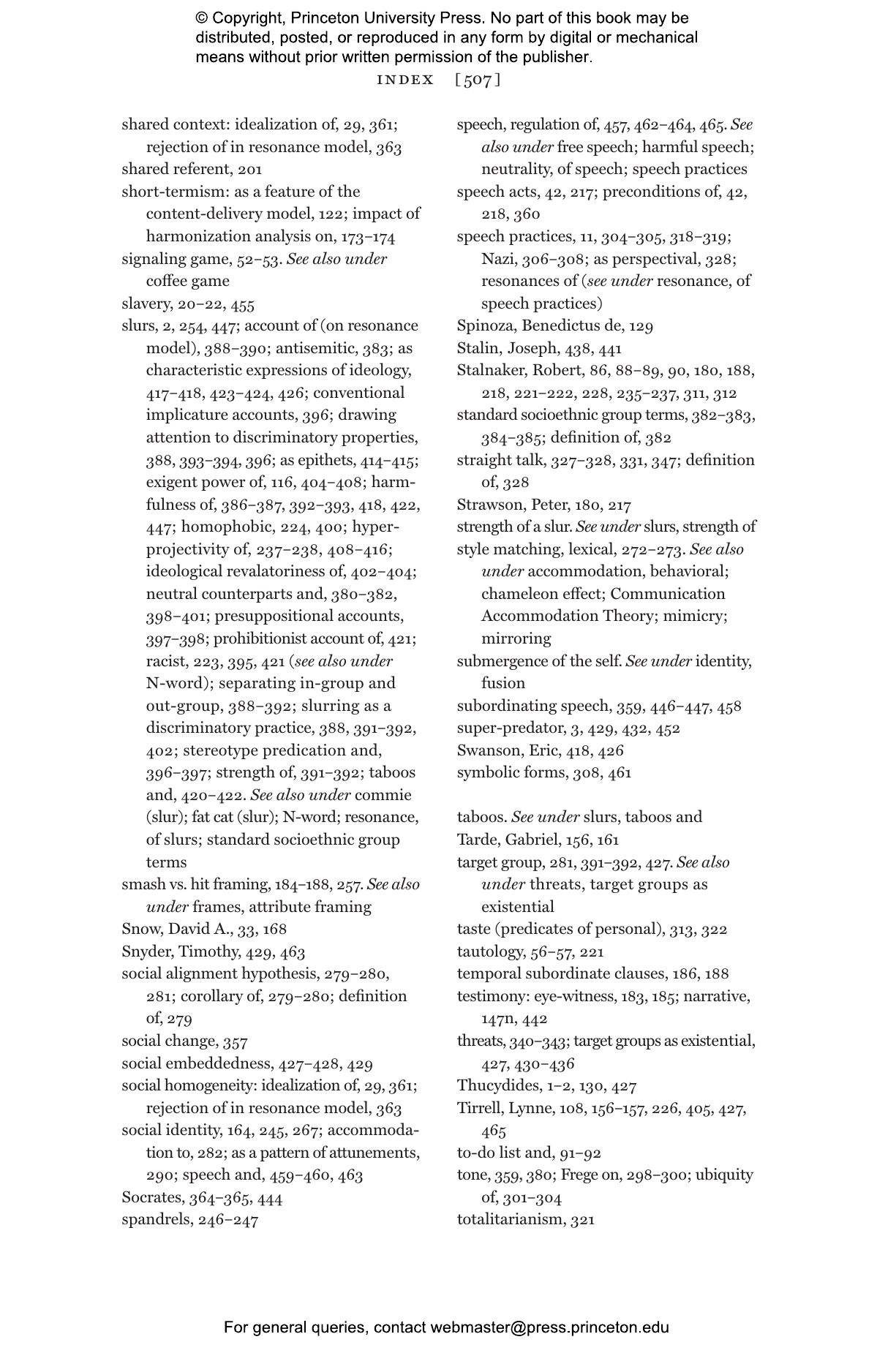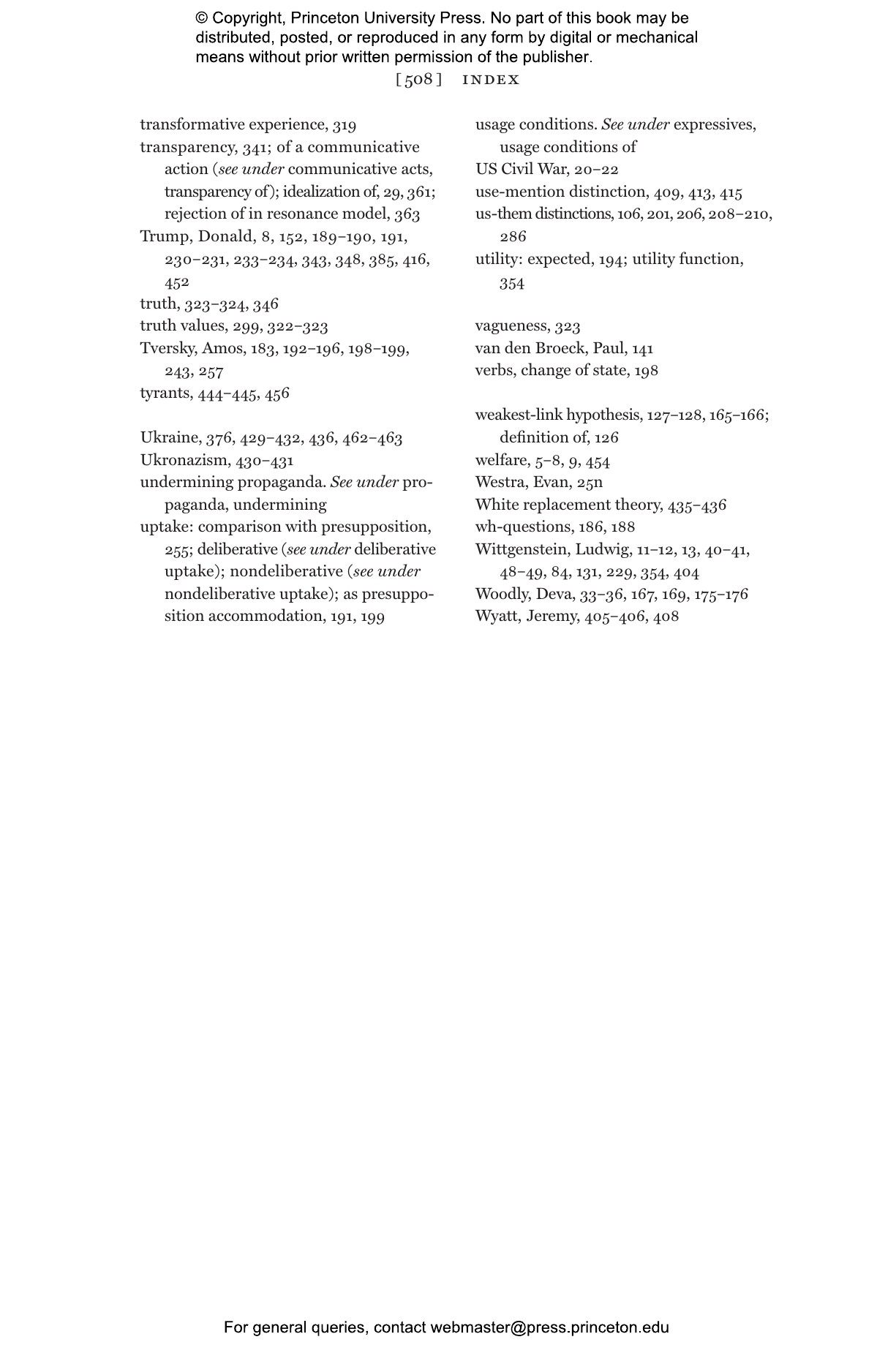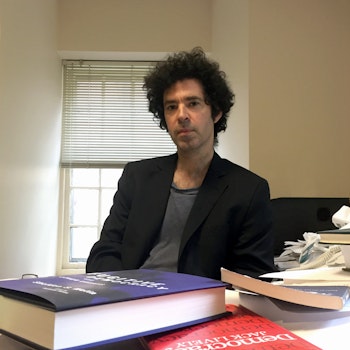In The Politics of Language, David Beaver and Jason Stanley present a radical new approach to the theory of meaning, offering an account of communication in which political and social identity, affect, and shared practices play as important a role as information. This new view of language, they argue, has dramatic consequences for free speech, democracy, and a range of other areas in which speech plays a central role.
Drawing on a wealth of disciplines, The Politics of Language argues that the function of speech—whether in dialogue, larger group interactions, or mass communication—is to attune people to something, be it a shared reality, emotion, or identity. Reconceptualizing the central ideas of pragmatics and semantics, Beaver and Stanley apply their account to a range of phenomena that defy standard frameworks in linguistics and philosophy of language—from dog whistles and covert persuasion to echo chambers and genocidal speech. The authors use their framework to show that speech is inevitably political because all communication is imbued with the resonances of particular ideologies and their normative perspectives on reality.
At a time when democracy is under attack, authoritarianism is on the rise, and diversity and equality are being demanded, The Politics of Language offers a powerful new vision of the language of politics, ideology, and protest.
David Beaver is professor of linguistics and philosophy at the University of Texas at Austin and director of the UT Cognitive Science Program. His books include Presupposition and Assertion in Dynamic Semantics and Sense and Sensitivity: How Focus Determines Meaning. Jason Stanley is the Jacob Urowsky Professor of Philosophy at Yale University. He is the author of How Fascism Works: The Politics of Us and Them and How Propaganda Works (Princeton), among other books.
"[An] important book by two prominent scholars."—Choice
“The Politics of Language is destined to be a classic. It will significantly recast how philosophers and others think about the power of language to shape social reality and individual identity. With its groundbreaking analysis, the book is well positioned to be the leading source on nonideal philosophy of language for years to come. Anyone concerned with understanding the power of language will profit immeasurably from its insights.”—Lynne Tirrell, University of Connecticut
“The scope and breadth of this book is a thing of awe. For the first time, The Politics of Language systematically puts analytic philosophy of language and formal semantics into productive contact with a host of other fields that have studied the politics of language—from communication theory to Black political thought—all while drawing on examples of political speech that many people feel an urgent need to understand. This is an energizing and potentially transformative book.”—Susanna Siegel, Harvard University
"The Politics of Language is a tour de force. It will be an indispensable refence point for arguments in both the philosophy and politics of language for a long time. Its account of the politics of language has deep implications for how we understand the language of politics as well."—Pratap Bhanu Mehta, Princeton University


